Here are my favorite dark lonely poems categorized:
- Famous dark poems
- Dark poems about death
- Dark poems about pain
- Dark poems about love
- Dark poems about depression
- Dark poems about insanity
So if you want the best dark lonely poems, then you’re in the right place.
Keep reading!
- 53 Pensive Poems About Melancholy
- 73 Wistful Poems About Longing
- 117 Crushing Poems About Disappointment
- 49 Stinging Poems About Missing Someone

Dark Lonely Poems
Delve into the depths of human experience as you explore the eerie beauty of famous dark poems, the poignant reflections on mortality in dark poems about death, and the raw expressions of anguish and torment in dark poems about pain, love, and depression.
This collection unveils a tapestry of emotions that will envelop your soul, leaving an indelible mark upon your consciousness.
Prepare to be captivated by the mesmerizing interplay of darkness and artistry, as these poems navigate the labyrinthine corridors of human despair and solitude, inviting you to ponder the complexities of the human condition.
Let’s get into it!
My #1 Favorite Dark Lonely Poem

“Darkness” by Lord Byron
I had a dream, which was not all a dream.
The bright sun was extinguish’d, and the stars
Did wander darkling in the eternal space,
Rayless, and pathless, and the icy earth
Swung blind and blackening in the moonless air;
Morn came and went—and came, and brought no day,
And men forgot their passions in the dread
Of this their desolation; and all hearts
Were chill’d into a selfish prayer for light:
And they did live by watchfires—and the thrones,
The palaces of crowned kings—the huts,
The habitations of all things which dwell,
Were burnt for beacons; cities were consum’d,
And men were gather’d round their blazing homes
To look once more into each other’s face;
Happy were those who dwelt within the eye
Of the volcanos, and their mountain-torch:
A fearful hope was all the world contain’d;
Forests were set on fire—but hour by hour
They fell and faded—and the crackling trunks
Extinguish’d with a crash—and all was black.
The brows of men by the despairing light
Wore an unearthly aspect, as by fits
The flashes fell upon them; some lay down
And hid their eyes and wept; and some did rest
Their chins upon their clenched hands, and smil’d;
And others hurried to and fro, and fed
Their funeral piles with fuel, and look’d up
With mad disquietude on the dull sky,
The pall of a past world; and then again
With curses cast them down upon the dust,
And gnash’d their teeth and howl’d: the wild birds shriek’d
And, terrified, did flutter on the ground,
And flap their useless wings; the wildest brutes
Came tame and tremulous; and vipers crawl’d
And twin’d themselves among the multitude,
Hissing, but stingless—they were slain for food.
And War, which for a moment was no more,
Did glut himself again: a meal was bought
With blood, and each sate sullenly apart
Gorging himself in gloom: no love was left;
All earth was but one thought—and that was death
Immediate and inglorious; and the pang
Of famine fed upon all entrails—men
Died, and their bones were tombless as their flesh;
The meagre by the meagre were devour’d,
Even dogs assail’d their masters, all save one,
And he was faithful to a corse, and kept
The birds and beasts and famish’d men at bay,
Till hunger clung them, or the dropping dead
Lur’d their lank jaws; himself sought out no food,
But with a piteous and perpetual moan,
And a quick desolate cry, licking the hand
Which answer’d not with a caress—he died.
The crowd was famish’d by degrees; but two
Of an enormous city did survive,
And they were enemies: they met beside
The dying embers of an altar-place
Where had been heap’d a mass of holy things
For an unholy usage; they rak’d up,
And shivering scrap’d with their cold skeleton hands
The feeble ashes, and their feeble breath
Blew for a little life, and made a flame
Which was a mockery; then they lifted up
Their eyes as it grew lighter, and beheld
Each other’s aspects—saw, and shriek’d, and died—
Even of their mutual hideousness they died,
Unknowing who he was upon whose brow
Famine had written Fiend. The world was void,
The populous and the powerful was a lump,
Seasonless, herbless, treeless, manless, lifeless—
A lump of death—a chaos of hard clay.
The rivers, lakes and ocean all stood still,
And nothing stirr’d within their silent depths;
Ships sailorless lay rotting on the sea,
And their masts fell down piecemeal: as they dropp’d
They slept on the abyss without a surge—
The waves were dead; the tides were in their grave,
The moon, their mistress, had expir’d before;
The winds were wither’d in the stagnant air,
And the clouds perish’d; Darkness had no need
Of aid from them—She was the Universe.
Famous Dark Poems

“Melancholy” by John Fletcher
Hence, all you vain delights,
As short as are the nights,
Wherein you spend your folly:
There’s naught in this life sweet
If man were wise to see’t,
But only melancholy,
O sweetest Melancholy!
Welcome, folded arms, and fixed eyes,
A sigh that piercing mortifies,
A look that’s fastened to the ground,
A tongue chained up without a sound!
Fountain-heads and pathless groves,
Places which pale passion loves!
Moonlight walks, when all the fowls
Are warmly housed save bats and owls!
A midnight bell, a parting groan!
These are the sounds we feed upon;
Then stretch our bones in a still gloomy valley;
Nothing’s so dainty sweet as lovely melancholy.
“On Melancholy” by John Keats
No, no! go not to Lethe, neither twist
Wolf’s-bane, tight-rooted, for its poisonous wine;
Nor suffer thy pale forehead to be kissed
By nightshade, ruby grape of Proserpine;
Make not your rosary of yew -berries,
Nor let the beetle, nor the death-moth be
Your mournful Psyche, nor the downy owl
A partner in your sorrow’s mysteries ;
For shade to shade will come too drowsily,
And drown the wakeful anguish of the soul.
But when the melancholy fit shall fall
Sudden from heaven like a weeping cloud,
That fosters the droop -headed flowers all,
And hides the green hill in an April shroud;
Then glut thy sorrow on a morning rose,
Or on the rainbow of the salt sand-wave,
Or on the wealth of globèd peonies;
Or if thy mistress some rich anger shows,
Emprison her soft hand, and let her rave,
And feed deep, deep upon her peerless eyes.
She dwells with Beauty—Beauty that must die;
And Joy, whose hand is ever at his lips
Bidding adieu; and aching Pleasure nigh,
Turning to poison while the bee-mouth sips:
Ay, in the very temple of Delight
Veiled Melancholy has her sovereign shrine,
Though seen of none save him whose strenuous tongue
Can burst Joy’s grape against his palate fine:
His soul shall taste the sadness of her might,
And be among her cloudy trophies hung.
“The Rainy Day” by Henry Wadsworth Longfellow
The day is cold, and dark, and dreary;
It rains, and the wind is never weary;
The vine still clings to the moldering wall,
But at every gust the dead leaves fall,
And the day is dark and dreary.
My life is cold, and dark , and dreary;
It rains, and the wind is never weary;
My thoughts still cling to the moldering Past,
But the hopes of youth fall thick in the blast
And the days are dark and dreary.
Be still , sad heart! and cease repining;
Behind the clouds is the sun still shining;
Thy fate is the common fate of all,
Into each life some rain must fall,
Some days must be dark and dreary.
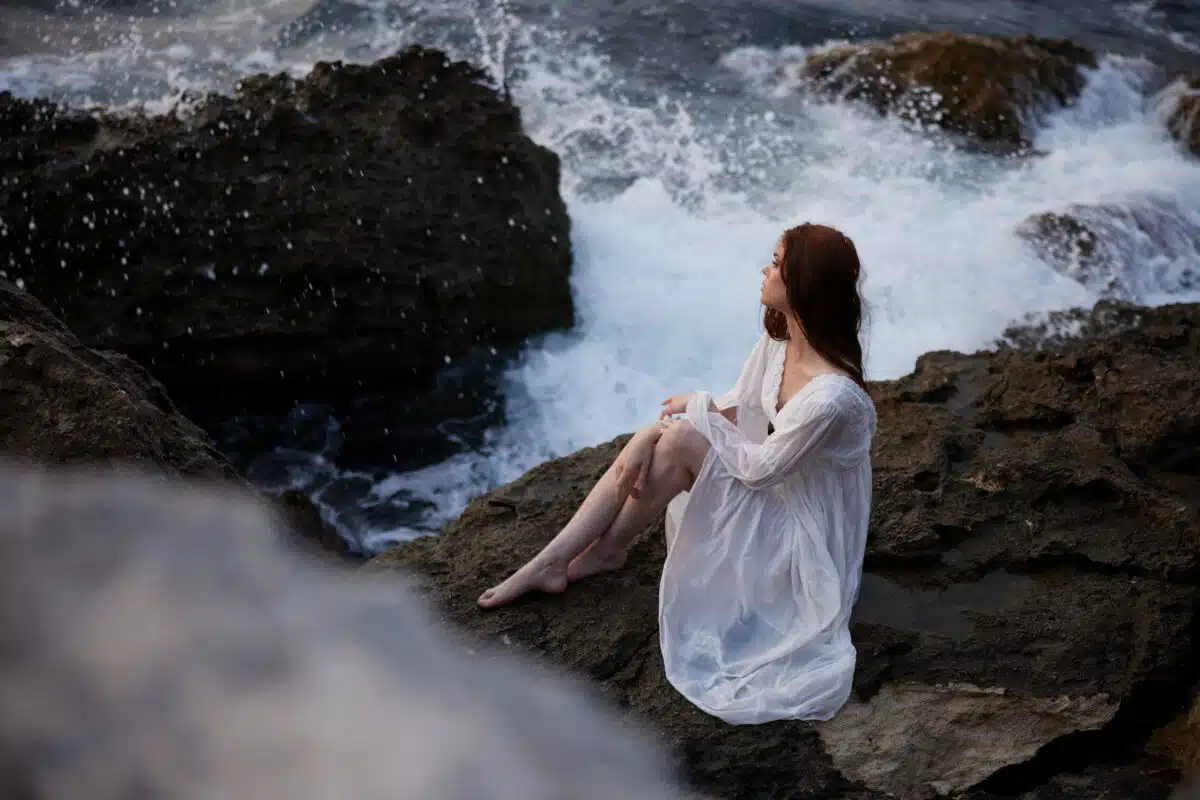
“Moan, Moan, Ye Dying Gales” by Henry Neele
Moan, moan, ye dying gales!
The saddest of your tales
Is not so sad as life;
Nor have you e’er began
A theme so wild as man,
Or with such sorrow rife.
Fall, fall, thou withered leaf!
Autumn sears not like grief,
Nor kills such lovely flowers;
More terrible the storm ,
More mournful the deform,
When dark misfortune lowers.
Hush! hush! thou trembling lyre,
Silence, ye vocal choir,
And thou, mellifluous lute,
For man soon breathes his last,
And all his hope is past,
And all his music mute.
Then , when the gale is sighing,
And when the leaves are dying,
And when the song is o’er,
0, let us think of those
Whose lives are lost in woes,
Whose cup of grief runs o’er.
“The Day Is Done” by Henry Wadsworth Longfellow
The day is done, and the darkness
Falls from the wings of Night,
As a feather is wafted downward
From an eagle in his flight.
I see the lights of the village
Gleam through the rain and the mist,
And a feeling of sadness comes o’er me
That my soul cannot resist:
A feeling of sadness and longing,
That is not akin to pain,
And resembles sorrow only
As the mist resembles the rain.
Come, read to me some poem,
Some simple and heartfelt lay,
That shall soothe this restless feeling,
And banish the thoughts of day.
Not from the grand old masters,
Not from the bards sublime,
Whose distant footsteps echo
Through the corridors of Time.
For, like strains of martial music,
Their mighty thoughts suggest
Life’s endless toil and endeavor;
And to-night I long for rest.
Read from some humbler poet,
Whose songs gushed from his heart,
As showers from the clouds of summer,
Or tears from the eyelids start;
Who, through long days of labor,
And nights devoid of ease,
Still heard in his soul the music
Of wonderful melodies
Such songs have power to quiet
The restless pulse of care,
And come like the benediction
That follows after prayer.
Then read from the treasured volume
The poem of thy choice,
And lend to the rhyme of the poet
The beauty of thy voice.
And the night shall be filled with music,
And the cares , that infest the day,
Shall fold their tents, like the Arabs,
And as silently steal away.
“The Weakest Thing” by Elizabeth Barrett Browning
Which is the weakest thing of all
Mine heart can ponder?
The sun, a little cloud can pall
With darkness yonder?
The cloud, a little wind can move
Where’er it listeth?
The wind, a little leaf above,
Though sere, resisteth?
What time that yellow leaf was green,
My days were gladder;
But now, whatever Spring may mean ,
I must grow sadder.
Ah me ! a leaf with sighs can wring
My lips asunder?
Then is mine heart the weakest thing
Itself can ponder.
Yet, Heart, when sun and cloud are pined
And drop together,
And at a blast which is not wind
The forests wither,
Thou, from the darkening deathly curse
To glory breakest, —
The Strongest of the universe
Guarding the weakest!
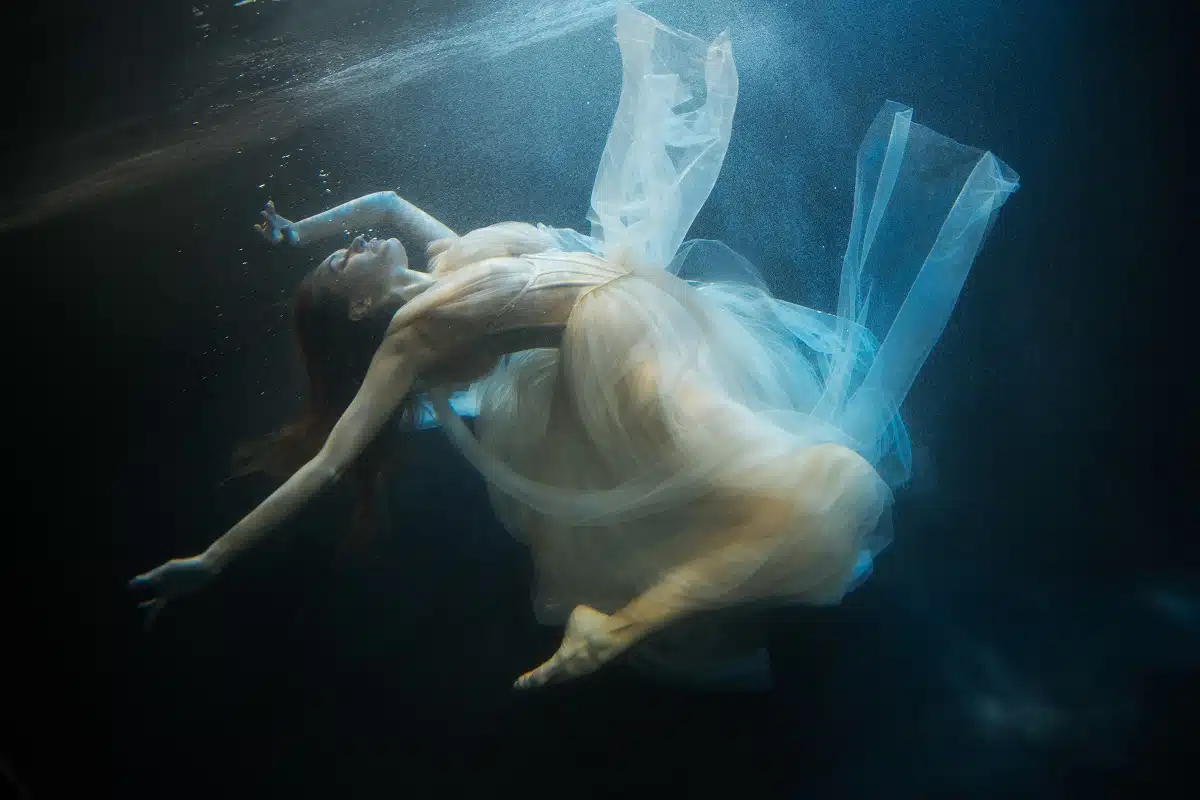
“The City In The Sea” by Edgar Allan Poe
Lo! Death has reared himself a throne
In a strange city lying alone
Far down within the dim West,
Where the good and the bad and the worst and the best
Have gone to their eternal rest.
There shrines and palaces and towers
(Time-eaten towers that tremble not)
Resemble nothing that is ours.
Around, by lifting winds forgot,
Resignedly beneath the sky
The melancholy waters lie.
No rays from the holy heaven come down
On the long night-time of that town;
But light from out the lurid sea
Streams up the turrets silently,
Gleams up the pinnacles far and free:
Up domes, up spires, up kingly halls,
Up fanes, up Babylon-like walls,
Up shadowy, long-forgotten bowers
Of sculptured ivy and stone flowers,
Up many and many a marvelous shrine,
Whose wreathèd friezes intertwine
The viol, the violet, and the vine.
Resignedly beneath the sky
The melancholy waters lie.
So blend the turrets and shadows there
That all seem pendulous in air,
While from a proud tower in the town
Death looks gigantically down.
There open fanes and gaping graves
Yawn level with the luminous waves;
But not the riches there that lie
In each idol’s diamond eye,—
Not the gaily-jeweled dead
Tempt the waters from their bed;
For no ripples curl, alas,
Along that wilderness of glass;
No swellings tell that winds may be
Upon some far-off happier sea ;
No heavings hint that winds have been
On seas less hideously serene!
But lo, a stir is in the air!
The wave—there is a movement there!
As if the towers had thrust aside,
In slightly sinking, the dull tide;
As if their tops had feebly given
A void within the filmy Heaven!
The waves have now a redder glow,
The hours are breathing faint and low;
And when, amid no earthly moans,
Down, down that town shall settle hence,
Hell, rising from a thousand thrones,
Shall do it reverence.
“Loneliness” by Emma Lazarus
All stupor of surprise hath passed away;
She sees, with clearer vision than before,
A world far off of light and laughter gay,
Herself alone and lonely evermore.
Folk come and go, and reach her in no wise,
Mere flitting phantoms to her heavy eyes.
All outward things, that once seemed part of her,
Fall from her, like the leaves in autumn shed.
She feels as one embalmed in spice and myrrh,
With the heart eaten out, a long time dead;
Unchanged without, the features and the form;
Within, devoured by the thin red worm.
By her own prowess she must stand or fall,
This grief is to be conquered day by day.
Who could befriend her? who could make this small,
Or her strength great? she meets it as she may.
A weary struggle and a constant pain,
She dreams not they may ever cease nor wane.
From “The Suicide” by Edna St. Vincent Millay
“Curse thee, Life, I will live with thee no more!
Thou hast mocked me, starved me, beat my body sore!
And all for a pledge that was not pledged by me,
I have kissed thy crust and eaten sparingly
That I might eat again, and met thy sneers
With deprecations, and thy blows with tears,—
Aye, from thy glutted lash, glad, crawled away,
As if spent passion were a holiday!
And now I go. Nor threat, nor easy vow
Of tardy kindness can avail thee now
With me, whence fear and faith alike are flown;
Lonely I came, and I depart alone,
And know not where nor unto whom I go;
But that thou canst not follow me I know.
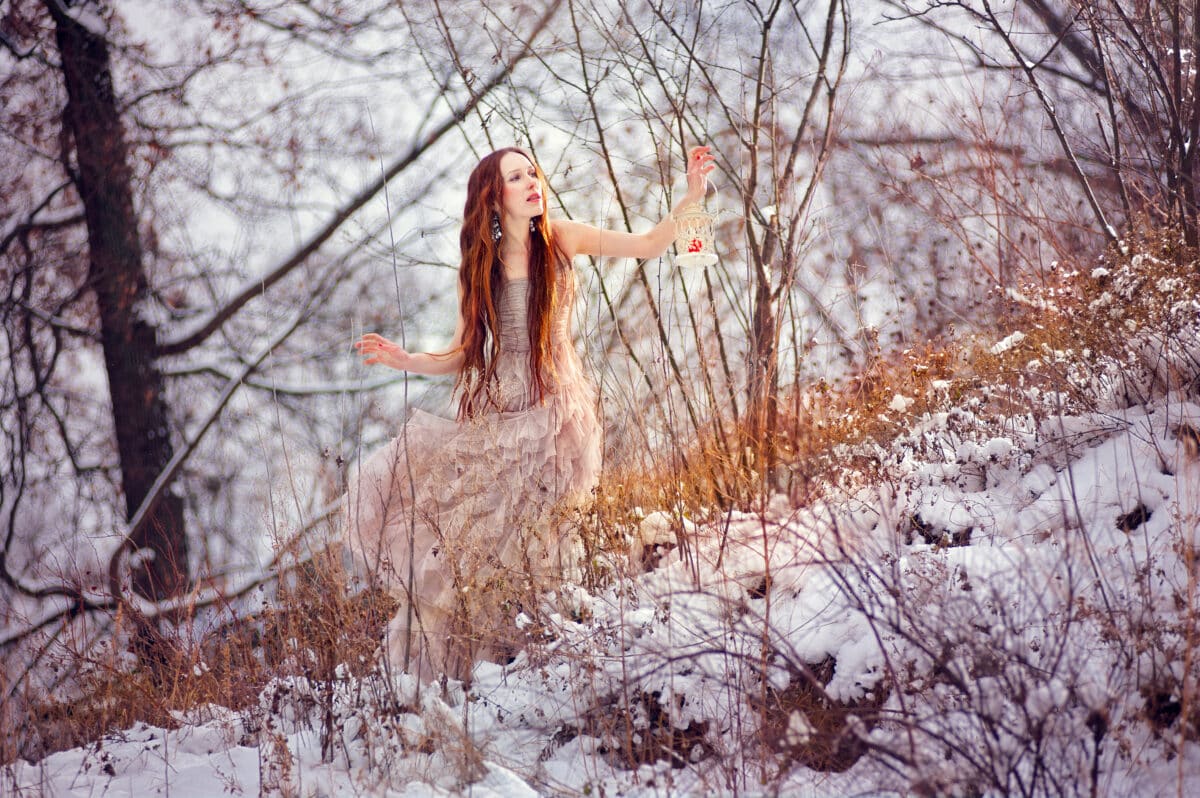
“Sonnet II” by Edna St. Vincent Millay
Time does not bring relief; you all have lied
Who told me time would ease me of my pain!
I miss him in the weeping of the rain;
I want him at the shrinking of the tide ;
The old snows melt from every mountain-side,
And last year’s leaves are smoke in every lane;
But last year’s bitter loving must remain
Heaped on my heart, and my old thoughts abide!
There are a hundred places where I fear
To go, so with his memory they brim!
And entering with relief some quiet place
Where never fell his foot or shone his face
I say, “There is no memory of him here!”
And so stand stricken, so remembering him!
From “The Raven” by Edgar Allan Poe
Once upon a midnight dreary, while I pondered, weak and weary,
Over many a quaint and curious volume of forgotton lore,
While I nodded, nearly napping, suddenly there came a tapping,
As of some one gently rapping,—rapping at my chamber door.
“ ‘Tis some visitor,” I muttered, “ tapping at my chamber door,-
Only this, and nothing more.”
Ah, distinctly I remember it was in the bleak December,
And each separate dying ember wrought its ghost upon the floor,
Eagerly I wished the morrow ;—vainly I had sought to borrow
From mybooks surcease of sorrow , —sorrow for the lost Lenore,—
For the rare and radiant maiden whom the angels name Lenore,
Nameless here for evermore.
And the silken sad uncertain rustling of each purple curtain
Thrilled me—filled me — with fantastic terrors never felt before ;
So that now, to still the beating of my heart, I stood repeating
” ‘Tis some visitor entreating entrance at my chamber door,—
Some late visitor entreating entrance at my chamber door.
This it is , and nothing more.”
“Lenore” by Edgar Allan Poe
Ah, broken is the golden bowl!—the spirit flown forever!
Let the bell toll !—a saintly soul floats ‘on the
Stygian river;
And, Guy De Vere, hast thou no tear !—weep now,
or never more!
See, on yon drear and rigid bier low lies thy love,
Lenore!
Come, let the burial rite be read , –the funeral song
be sung!—
An anthem for the queenliest dead that ever died so
young,
A dirge for her the doubly dead in that she died so
young.
“Wretches! ye loved her for her wealth and hated
her for her pride!
And when she fell in feeble health, ye blessed her
that she died!
How shall the ritual, then, be read? —the requiem
how be sung
By you— by yours, the evil eye,—by yours,
the slanderous tongue
That did to death the innocence that died, and died
so young?”
Peccavimus! But rave not thus, and let a Sabbath
song
Go up to God so solemnly the dead may feel no
wrong!
The sweet Lenore hath “gone before,” with Hope,
that flew beside,
Leaving thee wild for the dear child that should
have been thy bride!—
For her, the fair and debonair, that now so lowly
lies,
The life upon her yellow hair, but not within her
eyes,—
The life still there, upon her hair,—the death upon
her eyes.
“Avaunt! To-night my heart is light! No dirge
will I upraise,
But waft the angel on her flight with a pæan of old
days!
Let no bells toll!—lest her sweet soul, amid its
hallowed mirth,
Should catch the note, as it doth float up from the
damned Earth!
To friends above, from fiends below, the indignant
ghost is riven,—
From Hell unto a high estate far up within the
Heaven,—
From grief and groan to a golden throne, beside the
King of Heaven.”
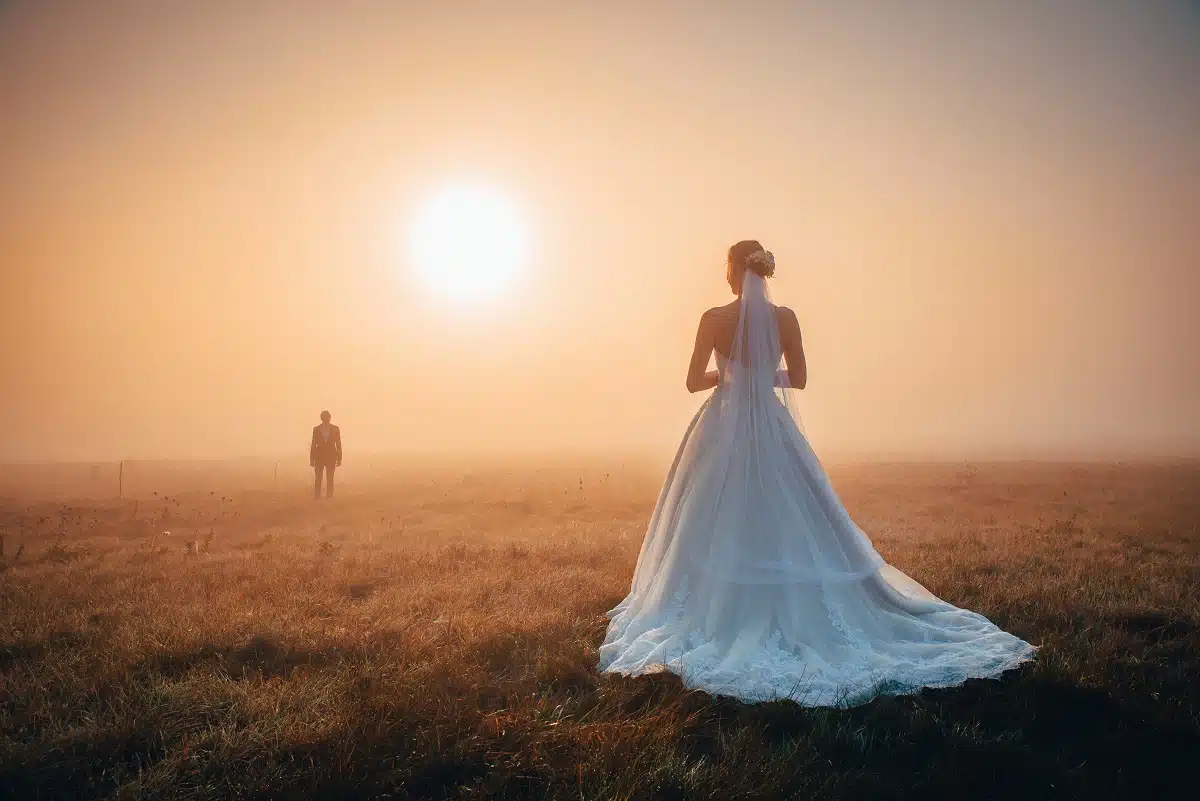
“Annabel Lee” by Edgar Allan Poe
It was many andmany a year ago,
In a kingdom by the sea,
That a maiden there lived whom you may know ,
By the name of ANNABEL LEE ;
And this maiden she lived with no other thought
Than to love and be loved by me.
I was a child and she was a child,
In this kingdom by the sea:
But we loved with a love that was more than love,—
I and my ANNABEL LEE;
With a love that the winged seraphs of heaven
Coveted her and me.
And this was the reason that, long ago,
In this kingdom by the sea,
A wind blew out of a cloud, chilling
My beautiful ANNABEL LEE;
So that her highborn kinsmen came
And bore her away from me,
To shut her up in a sepulchre
In this kingdom by the sea.
The angels, not half so happy in heaven,
Went envying her and me, —
Yes! —that was the reason (as all men know,
In this kingdom by the sea)
That the wind came out of the cloud by night,
Chilling and killing my ANNABEL LEE.
But our love it was stronger by far than the love
Of those who were older than we.—
Of many far wiser than we;
And neither the angels in heaven above,
Nor the demons down under the sea,
Can ever dissever my soul from the soul
Of the beautiful ANNABEL LEE:
For the moon never beams, without bringing me dreams
Of the beautiful ANNABEL LEE;
And the stars never rise, but I feel the bright eyes
Of the beautiful ANNABEL LEE ;
And so, all the night tide, I lie down by the side
Of my darling—my darling—my life and my bride,
In the sepulchre there by the sea,
In her tomb by the sounding sea.
“The Valley of Unrest” by Edgar Allan Poe
Once it smiled a silent dell
Where the people did not dwell;
They had gone unto the wars,
Trusting to the mild-eyed stars,
Nightly, from their azure towers,
To keep watch above the flowers,
In the midst of which all day
The red sunlight lazily lay.
Now each visitor shall confess
The sad valley’s restlessness.
Nothing there is motionless ,
Nothing save the airs that brood
Over the magic solitude.
Ab, by no wind are stirred those trees
That palpitate like the chill seas
Around the misty Hebrides!
Ah, by no wind these clouds are driven
That rustle through the unquiet Heaven
Uneasily, from morn till even,
Over the violets there that lie
In myriad types of the human eye,—
Over the lilies there that wave
And weep about a nameless grave!
They wave:—from out their fragrant tops
Eternal dews come down in drops,
They weep:—from off their delicate stems
Perennial tears descend in gems.
“A Dream” by Edgar Allan Poe
A wildered spirit from my birth ,
My spirit spurned control;
But now abroad on the wide earth,
Where wanderest thou, my soul.
In visions of the dark night
I have dream’d of joy departed ;
But a waking dream of life and light
Hath left me broken-hearted.
Ah, what is not a dream by day
To him whose eyes are cast
On things around him with a ray
Turned back upon the past?
That holy dream — that holy dream,
While all the world were chiding,
Hath cheered me as a lovely beam
A lonely spirit guiding.
What tho’ that light, thro’ storm and night,
So trembled from afar,
What could there be more purely bright
In Truth’s day star?
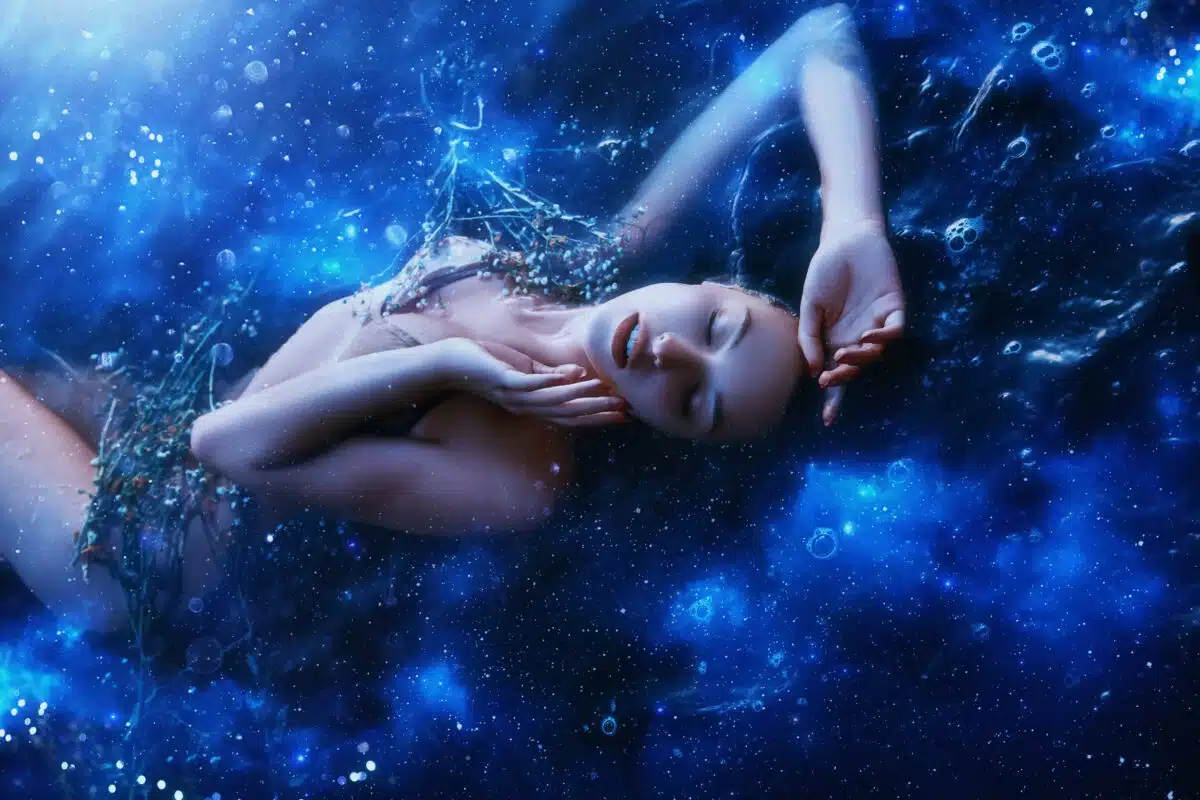
“All Things Will Die” by Alfred Lord Tennyson
Clearly the blue river chimes in its flowing
Under my eye;
Warmly and broadly the south winds are blowing
Over the sky.
One after another the white clouds are fleeting;
Every heart this May morning in joyance is beating
Full merrily;
Yet all things must die.
The stream will cease to flow;
The wind will cease to blow;
The clouds will cease to fleet;
The heart will cease to beat;
For all things must die.
All things must die.
Spring will come never more.
Oh! vanity!
Death waits at the door.
See! our friends are all forsaking
The wine and the merrymaking.
We are called—we must go.
Laid low, very low,
In the dark we must lie.
The merry glees are still;
The voice of the bird
Shall no more be heard,
Nor the wind on the hill.
Oh! misery!
Hark! death is calling
While I speak to ye,
The jaw is falling,
The red cheek paling,
The strong limbs failing;
Ice with the warm blood mixing;
The eyeballs fixing.
Nine times goes the passing bell:
Ye merry souls, farewell.
The old earth
Had a birth,
As all men know,
Long ago.
And the old earth must die.
So let the warm winds range,
And the blue wave beat the shore;
For even and morn
Ye will never see
Through eternity.
All things were born.
Ye will come never more,
For all things must die.
“Madrigal” by William Drummond
My thoughts hold mortal strife ;
I do detest my life,
And with lamenting cries
Peace to my soul to bring
Oft call that prince which here doth monarchize:
But he, grim-grinning King,
Who caitiffs scorns, and doth the blest surprise,
Late having deckt with beauty’s rose his tomb,
Disdains to crop a weed, and will not come.
“Song” by Christina Georgina Rossetti
When I am dead, my dearest,
Sing no sad songs for me;
Plant thou no roses at.my head,
Nor shady cypress tree:
Be the green grass above me
With showers and dewdrops wet;
And if thou wilt, remember,
And if thou wilt, forget.
I shall not see the shadows,
I shall not feel the rain;
I shall not hear the nightingale
Sing on, as if in pain:
And dreaming through the twilight
That doth not rise nor set,
Haply I may remember,
And haply may forget.

From “Romeo and Juliet” by William Shakespeare
How oft when men are at the point of death
Have they been merry! which their keepers call
A lightning before death: O ! how may I
Call this a lightning O my love! my wife!
Death, that hath suck’d the honey of thy breath,
Hath had no power yet upon thy beauty:
Thou art not conquer’d; beauty’s ensign yet
Is crimson in thy lips and in thy cheeks,
And death’s pale flag is not advanced there.
Tybalt, liest thou there in thy bloody sheet?
O! what more favour can I do to thee,
Than with that hand that cut thy youth in twain
To sunder his that was thine enemy?
Forgive me, cousin! Ah! dear Juliet,
Why art thou yet so fair? Shall I believe
That unsubstantial Death is amorous,
And that the lean abhorred monster keeps
Thee here in dark to be his paramour ?
For fear of that I still will stay with thee,
And never from this palace of dim night
Depart again: here, here will I remain
With worms that are thy chambermaids ; O! here
Will I set up my everlasting rest,
And shake the yoke of inauspicious stars
From this world-wearied flesh. Eyes, look your last
Arms, take your last embrace! and, lips, O you
The doors of breath, seal with a righteous kiss
A dateless bargain to engrossing death!
Come, bitter conduct, come, unsavoury guide!
Thou desperate pilot, now at once run on
The dashing rocks thy sea-sick weary bark!
Here’s to my love ! O true apothecary!
Thy drugs are quick. Thus with a kiss I die.
“Madrigal” by William Drummond
The beauty and the life
Of life’s and beauty’s fairest paragon,
O tears! O grief! hung at a feeble thread
To which pale Atropos had set her knife;
The soul with many a groan
Had left each outward part,
And now did take his last leave of the heart :
Nought else did want, save death, ev’n to be dead;
When the afflicted band about her bed,
Seeing so fair him come in lips, cheeks, eyes,
Cried, ‘Ah ! and can Death enter Paradise?’
“After Death” by Christina Georgina Rossetti
The curtains were half drawn, the floor was swept
And strewn with rushes, rosemary and may
Lay thick upon the bed on which I lay,
Where through the lattice ivy-shadows crept.
He leaned above me, thinking that I slept
And could not hear him; but I heard him say:
‘Poor child, poor child’ and as he turned away
Came a deep silence, and I knew he wept.
He did not touch the shroud, or raise the fold
That hid my face, or take my hand in his,
Or ruffle the smooth pillows for my head:
He did not love me living; but once dead
He pitied me ; and very sweet it is
To know he still is warm though I am cold.
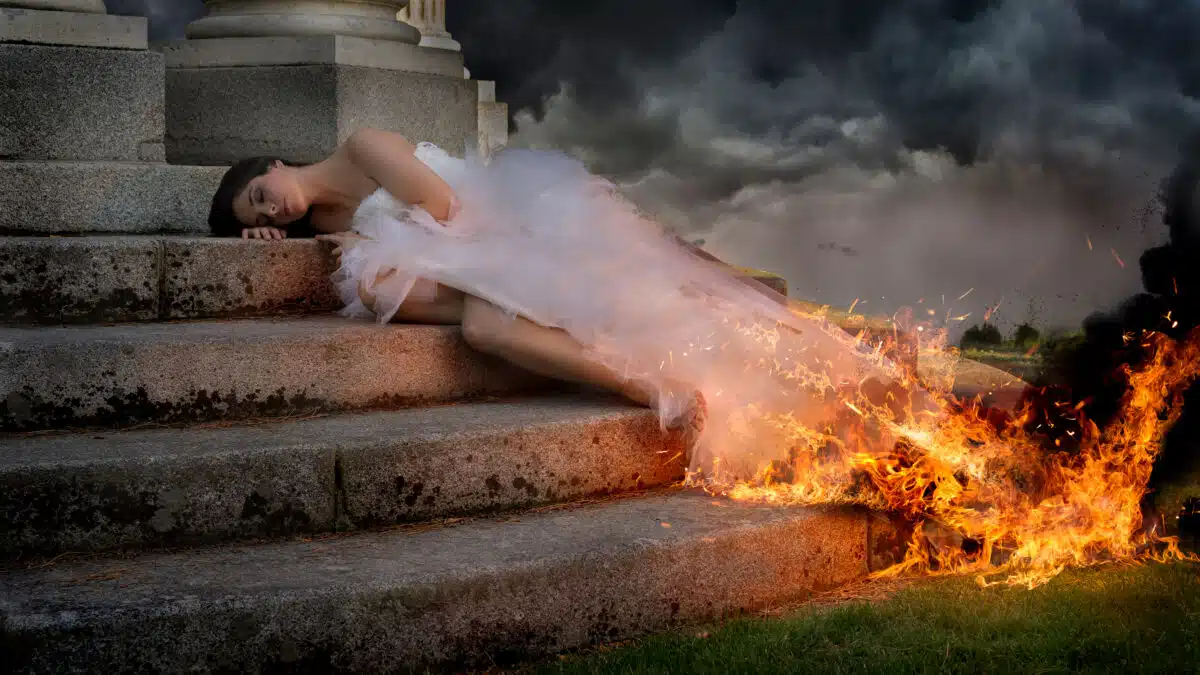
From “Maud” by Alfred Lord Tennyson
Dead, long dead,
Long dead!
And my heart is a handful of dust,
And the wheels go over my head,
And my bones are shaken with pain,
For into a shallow grave they are thrust,
Only a yard beneath the street,
And the hoofs of the horses beat, beat,
The hoofs of the horses beat,
Beat into my scalp and my brain,
With never an end to the stream of passing feet,
Driving, hurrying, marrying, burying,
Clamour and rumble, and ringing and clatter,
And here beneath it is all as bad,
For I thought the dead had peace, but it is not so;
To have no peace in the grave, is that not sad?
But up and down and to and fro,
Ever about me the dead men go.
From “In Memoriam” by Alfred Lord Tennyson
Dark house, by which once more I stand
Here in the long unlovely street,
Doors, where my heart was used to beat
So quickly, waiting for a hand,
A hand that can be clasp’d no more—
Behold me, for I cannot sleep,
And like a guilty thing I creep
At earliest morning to the door.
He is not here; but far away
The noise of life begins again,
And ghastly thro’ the drizzling rain
On the bald street breaks the blank day.
O days and hours, your work is this,
To hold me from my proper place,
A little while from his embrace,
For fuller gain of after bliss:
That out of distance might ensue
Desire of nearness doubly sweet;
And unto meeting when we meet,
Delight a hundredfold accrue,
For every grain of sand that runs,
And every span of shade that steals,
And every kiss of toothed wheels,
And all the courses of the suns.
From “The Daemon of the World” by Percy Bysshe Shelley
How wonderful is Death,
Death and his brother Sleep!
One pale as yonder wan and hornèd moon,
With lips of lurid blue,
The other glowing like the vital morn,
When throned on ocean’s wave
It breathes over the world:
Yet both so passing strange and wonderful!…
Human eye hath ne’er beheld
A shape so wild, so bright, so beautiful,
As that which o’er the maiden’s charmed sleep
Waving a starry wand,
Hung like a mist of light.
Such sounds as breathed around like odorous winds
Of waking spring arose,
Filling the chamber and the moonlight sky….
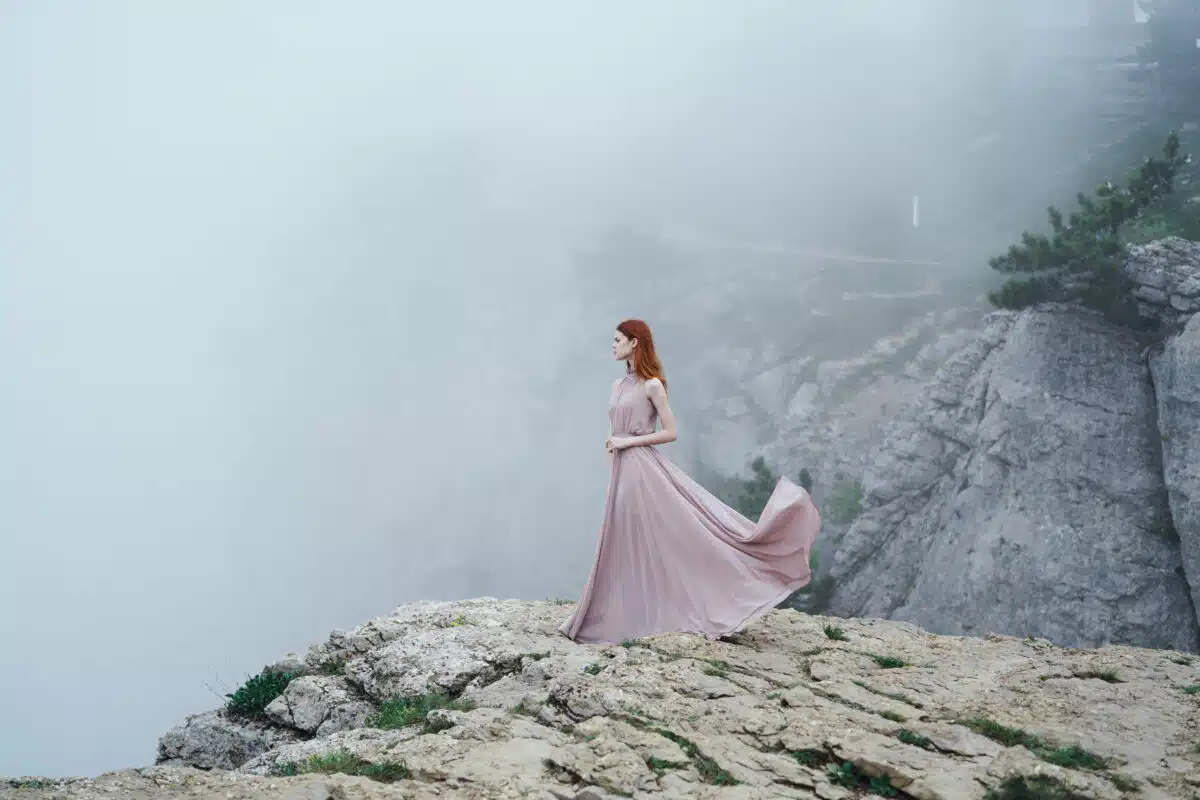
“If Death Is Kind” by Sara Teasdale
Perhaps if Death is kind, and there can be returning,
We will come back to earth some fragrant night,
And take these lanes to find the sea, and bending
Breathe the same honeysuckle, low and white.
We will come down at night to these resounding beaches
And the long gentle thunder of the sea,
Here for a single hour in the wide starlight
We shall be happy, for the dead are free.
“Storm Fear” by Robert Frost
When the wind works against us in the dark,
And pelts with snow
The lowest chamber window on the east,
And whispers with a sort of stifled bark,
The beast,
‘Come out! Come out!’
It costs no inward struggle not to go,
Ah, no!
I count our strength,
Two and a child,
Those of us not asleep subdued to mark
How the cold creeps as the fire dies at length,
How drifts are piled,
Dooryard and road ungraded,
Till even the comforting barn grows far away
And my heart owns a doubt
Whether ’tis in us to arise with day
And save ourselves unaided.
Dark Poems About Death

“Dreams of Death” by James William Harbinson
When they whisper l’m dead , O my Sweet! you’ll say,
“Not dead I my Beloved’s at rest today:
Oh I’ll go where he sleeps, we shall close the gates;
My Darling is weary, for me he waits.”
Then come where the winds of the night still sweep,
Come, with no tear to shed;
Whisper— ” I love you , I’ve come to sleep—
I’m so lonely, when you are dead.”
I know you will come, though I never call;—
And ever so timidly touch the pall
Of him, that alone , was your own, your all .
You will press my lips, Ah! they once were red,
They were warm for you—
Now, they’re cold instead;
And then- you’ll forget that I am dead .
Your breast will be near- where you love to sleep;
And we— together ;— while others weep—
Will dream one eternal, one long,— long— sleep.
“Laura” by James William Harbinson
O Death! cruel fate, if you’d only wait
For hearts that are weary and old:
We would not care
If you did not spare,
We know you are ruthless and cold .
You come and annoy while we laugh with joy,
You poison the river of life ;
Our hopes you slay
While the heart is gay,
You never grow weary of strife .
The happy and gay who enjoy today,
You sadden with sorrows untold;
You laugh at tears
And you mock their fears;
While near them your shadows unfold.
And yet, cruel Death, though your with’ring breath
We fear when in sorrow we weep;
‘Tis best to rest
With no cares opprest,
Enfolded for ever in sleep.
“My Heart’s-Ease” by James William Harbinson
I wandered o’er Life’s garden wide,
Restless, alone, unsatisfied.
I found a flower, and Ah I ’tis fair,
I sought you, Heart’s-ease, everywhere.
The other sails far, and the night falls fast,
His last dream of home is o’er,
Forthe winds like Death, with their with’ring breath,
Drift on to an endless shore,
Despairing, he prays to the icy skies
To waft his frail bark ashore;
But his prayer is blown where the waters moan
To the lonely ocean’s roar.

“River of Death” by James William Harbinson
M. R. H.
We pass, pass only once;—
O’er Death’s dark lonely stream:
Like dreams we die;—We sleep;
And know not that we dream.
Oblivion late or soon,
Death , and an unknown Fate
Call some to rest at noon;—
Some, when the night is late.
Ever the first to rest,
Are first to cross the stream:
Life! and Desire! and Death!
Life after Death— a Dream?
“Death, Be Not Proud” by John Donne
Death, be not proud, though some have called thee
Mighty and dreadful, for thou art not so:
For those whom thou think’st thou dost overthrow
Die not, poor Death ; nor yet canst thou kill me.
From Rest and Sleep, which but thy picture be,
Much pleasure, then from thee much more must flow;
And soonest our best men with thee do go
Rest of their bones and souls’ delivery!
Thou’rt slave to fate, chance, kings, and desperate men,
And dost with poison, war, and sickness dwell;
And poppy or charms can make us sleep as well
And better than thy stroke. Why swell’st thou then?
One short sleep past , we wake eternally,
And Death shall be no more: Death, thou shalt die!
“Grief” by Elizabeth Barrett Browning
I tell you, hopeless grief is passionless;
That only men incredulous of despair,
Half-taught in anguish, through the midnight air
Beat upward to God’s throne in loud access
Of shrieking and reproach. Full desertness,
In souls as countries, lieth silent-bare
Under the blanching, vertical eye-glare
Of the absolute Heavens. Deep-hearted man, express
Grief for thy Dead in silence like to death—
Most like a monumental statue set
In everlasting watch and moveless woe
Till itself crumble to the dust beneath.
Touch it; the marble eyelids are not wet:
If it could weep, it could arise and go.
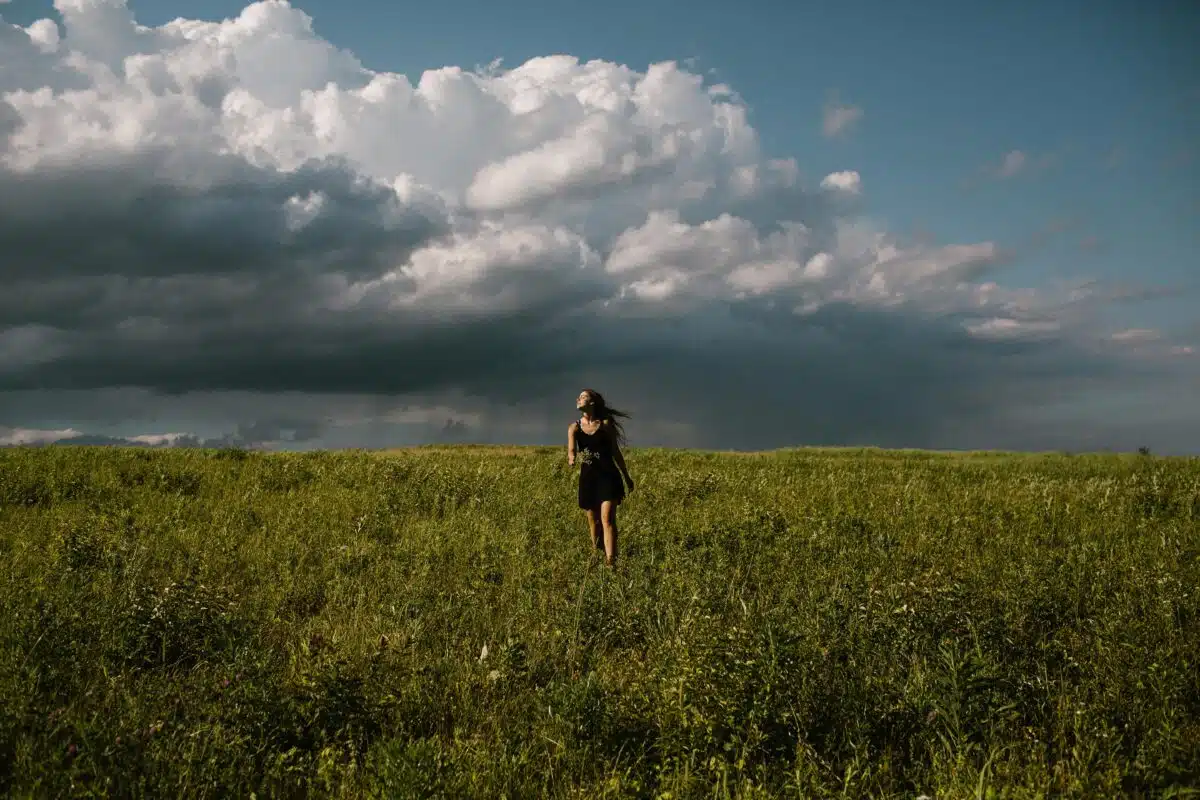
“Endurance” by Elizabeth Akers
How much the heart may bear, and yet not break!
How much the flesh may suffer, and not die!
I question much if any pain or ache
Of soul or body brings our end more nigh:
Death chooses his own time; till that is sworn,
All evils may be borne.
We shrink and shudder at the surgeon’s knife,
Each nerve recoiling from the cruel steel
Whose edge seems searching for the quivering life ;
Yet to our sense the bitter pangs reveal,
That still, although the trembling flesh be torn,
This also can be borne.
We see a sorrow rising in our way,
And try to flee from the approaching ill;
We seek some small escape: we weep and pray;
But when the blow falls, then our hearts are still;
Not that the pain is of its sharpness shorn,
But that it can be borne.
We wind our life about another life;
We hold it closer, dearer than our own:
Anon it faints and fails in deathly strife ,
Leaving us stunned and stricken and alone ;
But ah ! we do not die with those we mourn,—
This also can be borne.
Behold, we live through all things ,—famine, thirst,
Bereavement, pain; all grief and misery,
All woe and sorrow; life inflicts its worst
On soul and body, —but we can not die.
Though we be sick, and tired, and faint, and worn,—
Lo, all things can be borne!
“To Death” by Anne Finch
O King of Terrors! whose unbounded sway
All that have life must certainly obey;
The king, the priest, the prophet, all are thine,
Nor would even God (in flesh ) thy stroke decline.
My name is on thy roll, and sure I must
Increase thy gloomy kingdom in the dust.
My soul at this no apprehension feels,
But trembles at thy swords, thy racks, thy wheels,
Thy scorching fevers, which distract the sense,
And snatch us raving, unprepared, from hence;
At thy contagious darts, that wound the heads
Of weeping friends who wait at dying beds.
Spare these , and let thy time be when it will;
My office is to die , and thine to kill.
Gently thy fatal scepter on me lay,
And take to thy cold arms, insensibly, thy prey.
“Dead Before Death: Sonnet” by Christina Georgina Rossetti
Ah! changed and cold, how changed and very cold,
With stiffened smiling lips and cold calm eyes:
Changed, yet the same; much knowing, little wise;
This was the promise of the days of old!
Grown hard and stubborn in the ancient mould,
Grown rigid in the sham of lifelong lies:
We hoped for better things as years would rise,
But it is over as a tale once told.
All fallen the blossom that no fruitage bore,
All lost the present and the future time,
All lost, all lost, the lapse that went before:
So lost till death shut-to the opened door,
So lost from chime to everlasting chime,
So cold and lost for ever evermore.
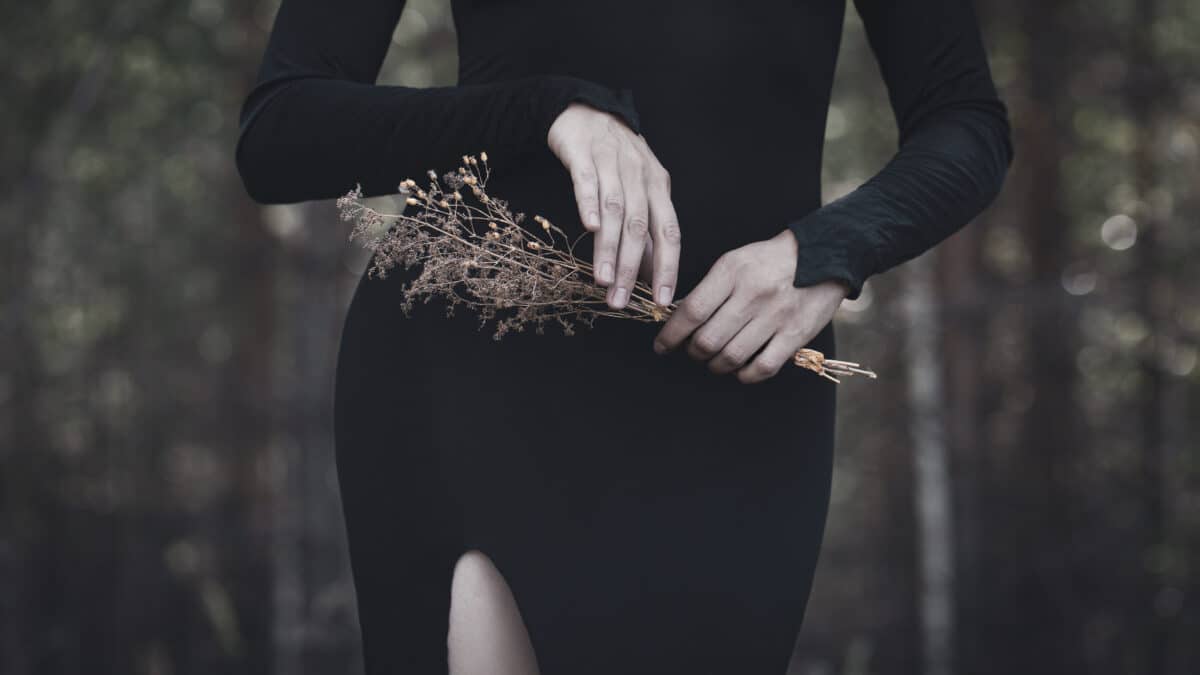
“Death” by Emily Brontë
Death! that struck when I was most confiding.
In my certain faith of joy to be—
Strike again, Time’s withered branch dividing
From the fresh root of Eternity!
Leaves, upon Time’s branch, were growing brightly,
Full of sap, and full of silver dew;
Birds beneath its shelter gathered nightly;
Daily round its flowers the wild bees flew.
Sorrow passed, and plucked the golden blossom;
Guilt stripped off the foliage in its pride
But, within its parent’s kindly bosom,
Flowed for ever Life’s restoring tide.
Little mourned I for the parted gladness,
For the vacant nest and silent song—
Hope was there, and laughed me out of sadness;
Whispering, “Winter will not linger long!”
And, behold! with tenfold increase blessing,
Spring adorned the beauty-burdened spray;
Wind and rain and fervent heat, caressing,
Lavished glory on that second May!
High it rose—no winged grief could sweep it;
Sin was scared to distance with its shine;
Love, and its own life, had power to keep it
From all wrong—from every blight but thine!
Cruel Death! The young leaves droop and languish;
Evening’s gentle air may still restore—
No! the morning sunshine mocks my anguish-
Time, for me, must never blossom more!
Strike it down, that other boughs may flourish
Where that perished sapling used to be;
Thus, at least, its mouldering corpse will nourish
That from which it sprung—Eternity.
“Death” by Victor James Daley
The awful seers of old, who wrote in words
Like drops of blood great thoughts that through the night
Of ages burn, as eyes of lions light
Deep jungle-dusks; who smote with songs like swords
The soul of man on its most secret chords,
And made the heart of him a harp to smite,
Where are they? where that old man lorn of sight,
The king of song among these laurelled lords?
But where are all the ancient singing-spheres
That burst through chaos like the summer’s breath
Through ice-bound seas where never seaman steers?
Burnt out. Gone down. No star remembereth
These stars and seers well-silenced through the years
The songless years of everlasting death.
“The Death-Dream” by Walter De La Mare
Who, now, put dreams into thy slumbering mind?
Who, with bright Fear’s lean taper, crossed a hand
Athwart its beam, and stooping, truth maligned,
Spake so thy spirit speech should understand,
And with a dread “He’s dead!” awaked a peal
Of frenzied bells along the vacant ways
Of thy poor earthly heart; waked thee to steal,
Like dawn distraught upon unhappy days,
To prove nought, nothing? Was it Time’s large voice
Out of the inscrutable future whispered so?
Or but the horror of a little noise
Earth wakes at dead of night? Or does Love know
When his sweet wings weary and droop, and even
In sleep cries audibly a shrill remorse?
Or, haply, was it I who out of dream
Stole but a little where shadows course,
Called back to thee across the eternal stream?

“Death Chant” by Walter Scott (Sir)
Viewless essence, thin and bare,
Well nigh melted into air,
Still with fondness hovering near
The earthly form thou once didst wear,
Pause upon thy pinion’s flight;
Be thy course to left or right,
Be thou doomed to soar or sink,
Pause upon the awful brink.
To avenge the deed expelling
Thee untimely from thy dwelling,
Mystic force thou shalt retain
O’er the blood and o’er the brain.
When the form thou shalt espy
That darken’d on thy closing eye,
When the footstep thou shalt hear
That thrill’d upon thy dying ear,
Then strange sympathies shall wake,
The flesh shall thrill, the nerves shall quake,
The wounds renew their clotter’d flood,
And every drop cry blood for blood!
“Death” by Percy Bysshe Shelley
1.
They die – the dead return not – Misery
Sits near an open grave and calls them over,
A Youth with hoary hair and haggard eye –
They are the names of kindred, friend and lover,
Which he so feebly calls – they all are gone –
Fond wretch, all dead! those vacant names alone,
This most familiar scene, my pain –
These tombs – alone remain.
2.
Misery, my sweetest friend – oh, weep no more!
Thou wilt not be consoled – I wonder not!
For I have seen thee from thy dwelling’s door
Watch the calm sunset with them, and this spot
Was even as bright and calm, but transitory,
And now thy hopes are gone, thy hair is hoary;
This most familiar scene, my pain –
These tombs – alone remain.
“Death” by Paul Laurence Dunbar
Storm and strife and stress,
Lost in a wilderness,
Groping to find a way,
Forth to the haunts of day
Sudden a vista peeps,
Out of the tangled deeps,
Only a point–the ray
But at the end is day.
Dark is the dawn and chill,
Daylight is on the hill,
Night is the flitting breath,
Day rides the hills of death.
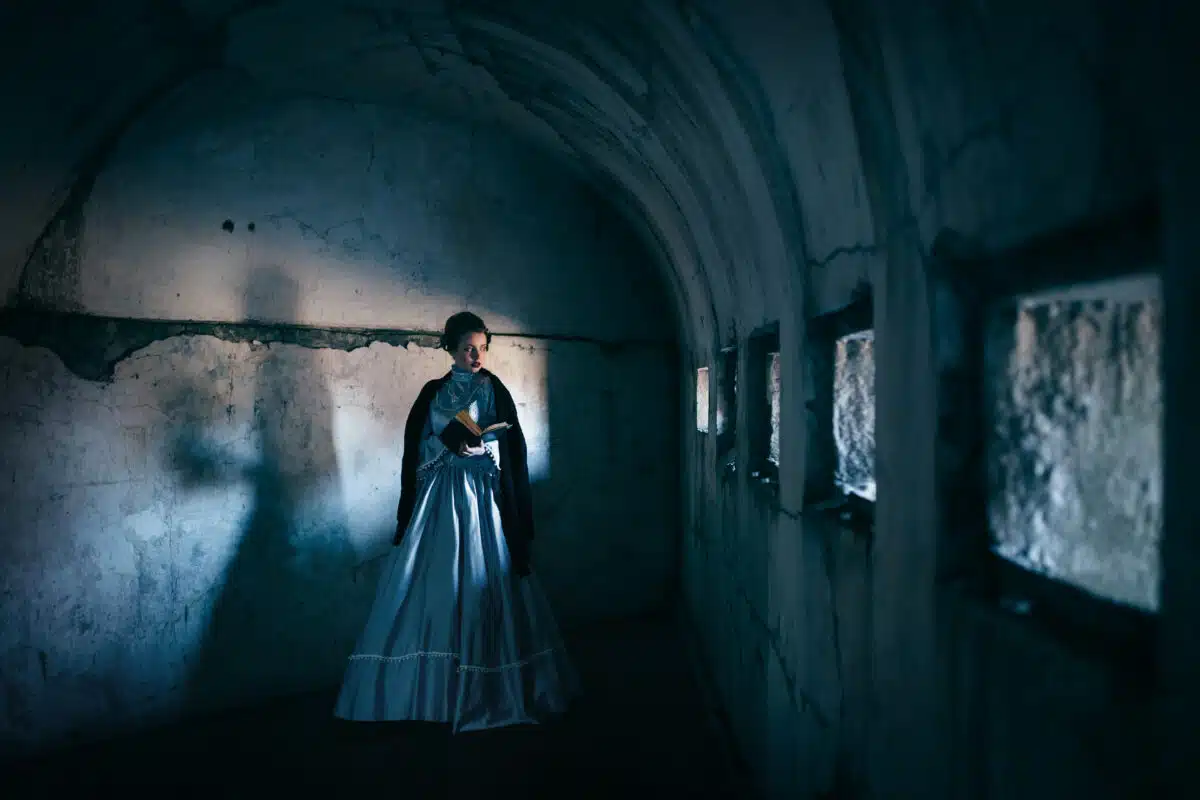
“Lonely Burial” by Stephen Vincent Benet
There were not many at that lonely place,
Where two scourged hills met in a little plain.
The wind cried loud in gusts, then low again.
Three pines strained darkly, runners in a race
Unseen by any. Toward the further woods
A dim harsh noise of voices rose and ceased.
—We were most silent in those solitudes—
Then, sudden as a flame, the black-robed priest,
The clotted earth piled roughly up about
The hacked red oblong of the new-made thing,
Short words in swordlike Latin—and a rout
Of dreams most impotent, unwearying.
Then, like a blind door shut on a carouse,
The terrible bareness of the soul’s last house.
“Sleep Is a Death” by Sir Thomas Browne
Sleep is a death; O make me try,
By sleeping, what it is to die!
And as gently lay my head
On my grave as now my bed.
Howe’er I rest, Great God, let me
Awake again at last with Thee;
And thus assured, behold I lie
Securely, or to wake or die.
“Warwick’s Death” by William Shakespeare
The Third Part of Henry VI, Act V. Scene 2
These eyes, that now are dimmed with death’s black veil,
Have been as piercing as the midday sun,
To search the secret treasons of the world:
The wrinkles in my brows, now fill’d with blood,
Were likened oft to kingly sepulchres;
For who liv’d king, but I could dig his grave?
And who durst smile when Warwick bent his brow?
Lo! now my glory smear’d in dust and blood;
My parks, my walks, my manors that I had,
Even now forsake me; and, of all my lands
Is nothing left me but my body’s length.
Why, what is pomp, rule, reign, but earth and dust?
And, live we how we can, yet die we must.
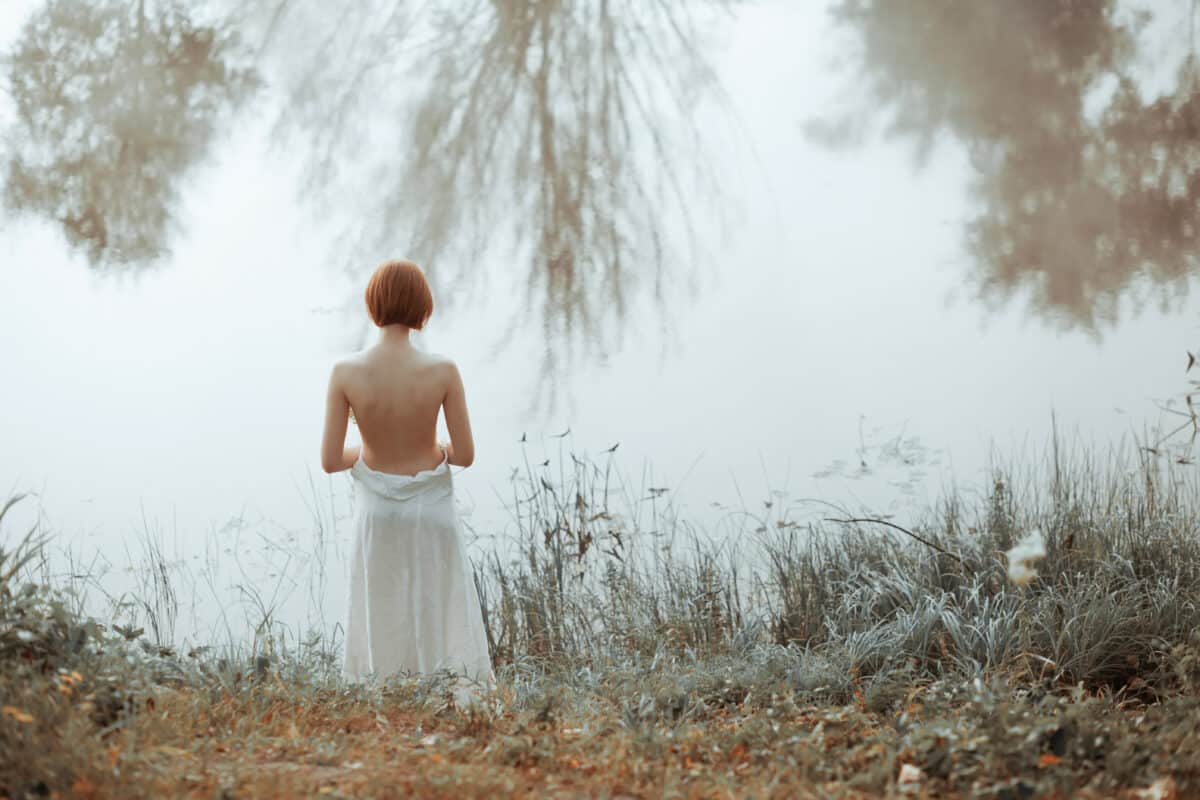
“The Genius of Death” by George Croly
What is Death? ’Tis to be free!
No more to love, or hope, or fear—
To join the great equality:
All alike are humbled there!
The mighty grave
Wraps lord and slave;
Nor pride nor poverty dares come
Within that refuge-house, the tomb!
“If I Should Die To-Night” by Belle E. Smith
If I should die to-night,
My friends would look upon my quiet face
Before they laid it in its resting-place,
And deem that death had left it almost fair;
And, laying snow-white flowers against my hair,
Would smooth it down with tearful tenderness,
And fold my hands with lingering caress,—
Poor hands, so empty and so cold to-night!
If I should die to-night,
My friends would call to mind, with loving thought,
Some kindly deed the icy hands had wrought;
Some gentle word the frozen lips had said;
Errands on which the willing feet had sped.
The memory of my selfishness and pride,
My hasty words, would all be put aside,
And so I should be loved and mourned to-night.
If I should die to-night,
Even hearts estranged would turn once more to me,
Recalling other days remorsefully;
The eyes that chill me with averted glance
Would look upon me as of yore, perchance,
And soften in the old familiar way;
For who could war with dumb unconscious clay?
So I might rest, forgiven of all, to-night.
Oh, friends, I pray to-night
Keep not your kisses for my dead, cold brow—
The way is lonely, let me feel them now.
Think gently of me; I am travel-worn;
My faltering feet are pierced with many a thorn.
Forgive, oh, hearts estranged, forgive, I plead!
When dreamless rest is mine I shall not need
The tenderness for which I long to-night.
“Dying” by Roden Berkeley Wriothesley Noel
They are waiting on the shore
For the bark to take them home;
They will toil and grieve no more;
The hour for release hath come.
All their long life lies behind,
Like a dimly blending dream;
There is nothing left to bind
To the realms that only seem.
They are waiting for the boat,
There is nothing left to do;
What was near them grows remote,
Happy silence falls like dew;
Now the shadowy bark is come,
And the weary may go home.
By still water they would rest,
In the shadow of the tree;
After battle sleep is best,
After noise tranquillity.
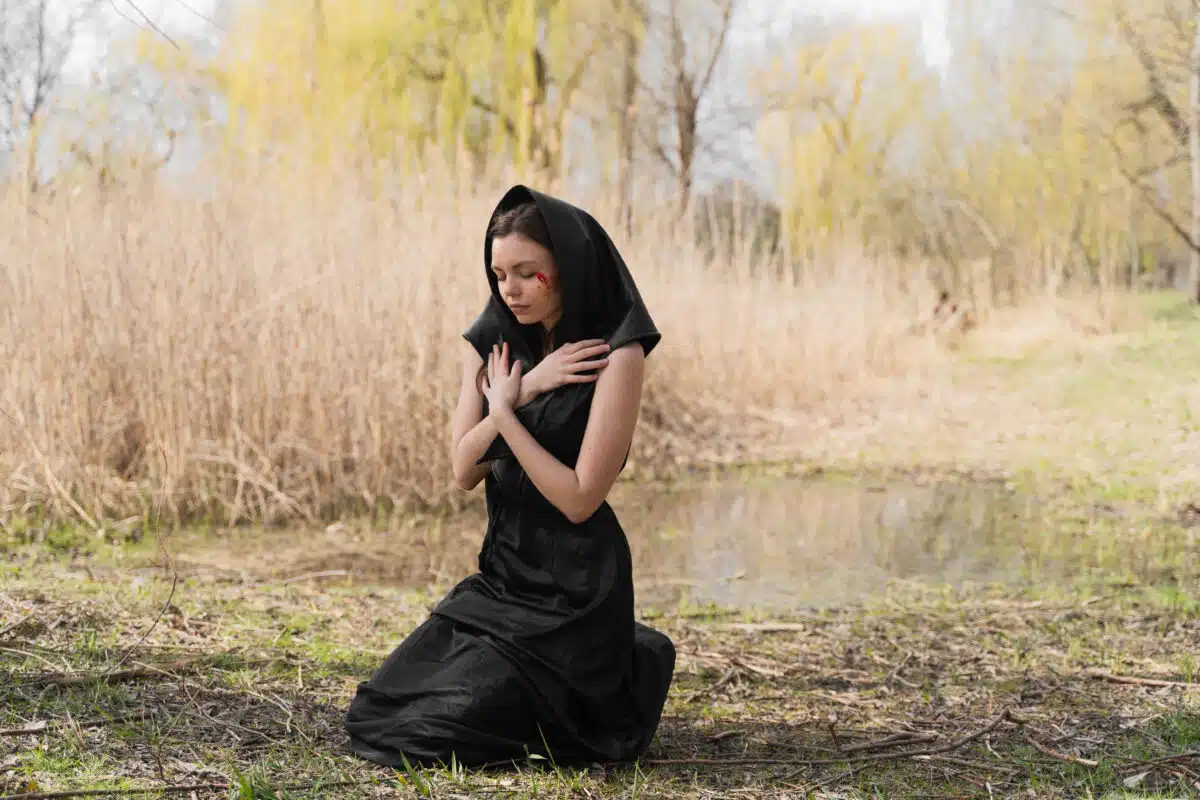
“A Question” by John M. Synge
I ask’d if I got sick and died , would you
With my black funeral go walking too,
If you’d stand close to hear them talk or pray
While I’m let down in that steep bank of clay.
And, No, you said, for if you saw a crew
Of living idiots pressing round that new
Oak coffin-they alive, I dead beneath
That board-you’d rave and rend them with your teeth
“Sonnet” by John Moultrie
The hand of Death lay heavy on her eyes,
For weeks and weeks her vision had not borne
To meet the tenderest light of eve or morn,
To see the crescent moonbeam set or rise,
Or palest twilight creep across the skies :
She lay in darkness, seemingly forlorn ,
With sharp and ceaseless anguish rack’d and torn,
Yet calm with that one peace which never dies.
Closed was, for her, the gate of visual sense,
This world and all its beauty lost in night ;
But the pure soul was all ablaze with light,
And through that gloom she saw, with gaze intense,
Celestial glories, hid from fleshly sight,
And heard angelic voices call her hence.
“Beside the Dead” by Ina Donna Coolbrith
With hands that folded are from every task,
It must sweet, O thou my dead, to lie
Sealed with the seal of the great mystery,—
The lips that nothing answer, nothing ask;
The life-long struggle ended; ended quite
The weariness of patience and of pain;
And the eyes closed to open not again
On desolate dawn or dreariness of night.
It must be sweet to slumber and forget;
To have the poor tired heart so still at last:
Done with all yearning, done with all regret;
Doubt, fear, hope, sorrow, all for ever past:
Past all the hours, or slow of wing or fleet—
It must be sweet, it must be very sweet!
Dark Poems About Pain

“Pain” by St. John Lucas
Dismal and purposeless and gray
The world and all its woe, we say,
Poor slaves! who in hot hours of pain
Yearn for the night to come again.
Like tortured men at length set free,
We stagger from our misery,
And watch with foolish, pain- dimmed eyes
Vague lands and unremembered skies.
When lo! what sudden splendor spreads
Its heaven of rose above our heads!
What soft winds visit our despair;
What lights, what voices everywhere!
Ere sorrow taught us, knew we these
Stupendous hills, amazing seas?
Shone there such moonlight on the lawn;
So deep a secret in the dawn?
What wandering hue from Paradise
Has found a home in children’s eyes?
What women these, whose faces bless
Life with such tranquil tenderness?
When earth and sky and man seem fair ,
Be this my watchword, this my prayer:
Grant me, O Gods, to prize aright
Sorrow, since sorrow gives me sight.
“Time and Grief” by William Lisle Bowles
O Time! who know’st aa lenient hand to lay
Softest on Sorrow’s wound, and slowly thence
(Lulling to sad repose the weary sense)
The faint pang stealest unperceived away;
On thee I rest my only hope at last,
And think, when thou hast dried the bitter tear
That flows in vain o’er all my soul held dear,
I may look back on every sorrow past,
And meet life’s peaceful evening with a smile:
As some lone bird, at day’s departing hour,
Sings in the sunbeam, of the transient shower
Forgetful, though its wings are wet the while:
Yet ah! how much must that poor heart endure,
Which hopes from thee, and thee alone, a cure!
“The Harp of Sorrow” by Ethel Clifford
Sorrow has a harp of seven strings
And plays on it unceasing all the day;
The first string sings of love that is long dead,
The second sings of lost hopes buried;
The third of happiness forgot and fled.
Of vigil kept in vain the fourth cord sings,
And the fifth string of roses dropped away.
The sixth string calls and is unananswered,
The seventh with your name for ever rings
I listen for its singing all the day!
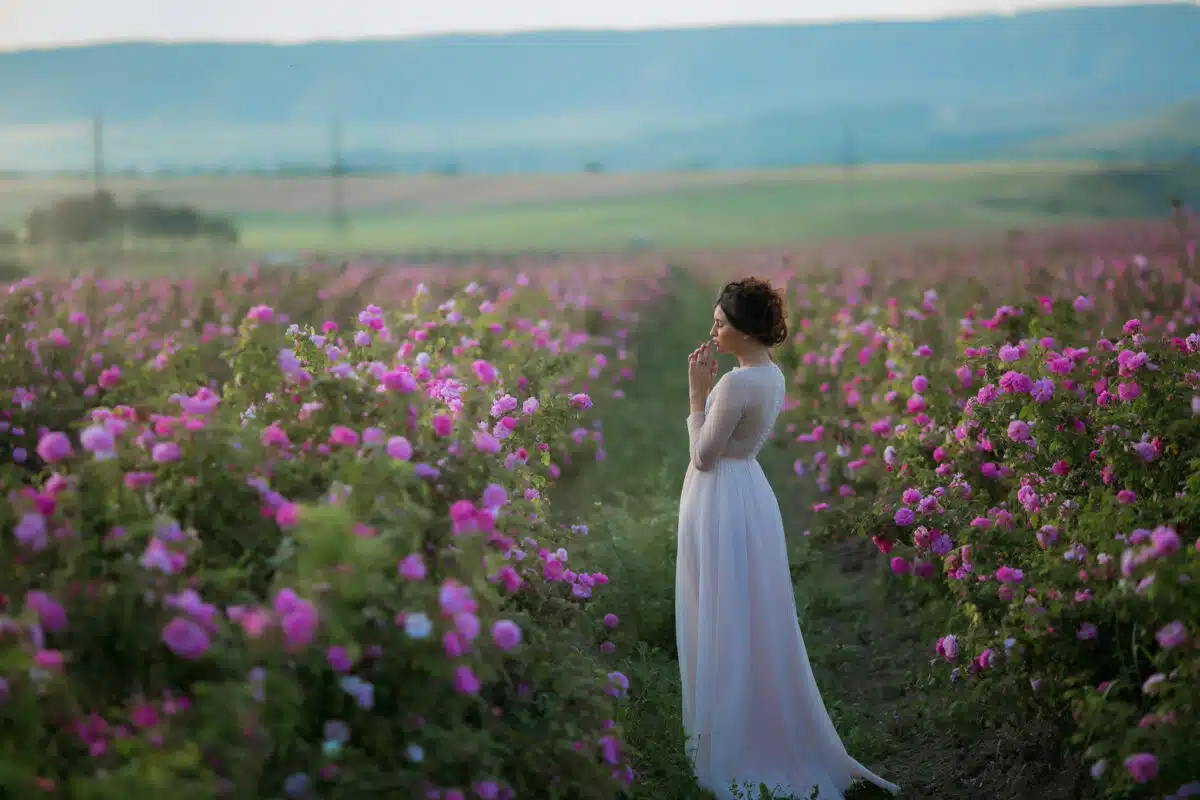
“No More” by Byron Forceythe Willson
This is the Burden of the Heart,
The Burden that it always bore:
We live to love; we meet to part;
And part to meet on earth No More:
We clasp each other to the heart,
And part to meet on earth No More.
There is a time for tears to start,—
For dews to fall and larks to soar :
The Time for Tears, is when we part
To meet upon the earth No More:
The Time for Tears, is when we part
To meet on this wide earth—No More.
“A Lost Cord” by Adelaide Anne Procter
Seated one day at the Organ,
I was weary and ill at ease,
And my fingers wandered idly
Over the noisy keys.
I do not know what I was playing,
Or what I was dreaming then;
But I struck one chord of music,
Like the sound of a great Amen.
It flooded the crimson twilight,
Like the close of an Angel’s Psalm,
And it lay on my fevered spirit
With a touch of infinite calm.
It quieted pain and sorrow,
Like love overcoming strife;
It seemed the harmonious echo
From our discordant life.
It linked all perplexed meanings
Into one perfect peace,
And trembled away into silence
As if it were loth to cease.
I have sought, but I seek it vainly ,
That one lost chord divine,
Which came from the soul of the Organ,
And entered into mine.
It may be that Death’s bright angel
Will speak in that chord again, —
It may be that only in Heaven
I shall hear that grand Amen.
“Pain” by Margaret Steele Anderson
You eat the heart of life like some great beast,
You blacken the sweet sky—that God made blue!
You are the death’s-head set amid the feast,
The desert breath, that drinks up every dew!
And no man lives that doth not fear you—Pain!
And no man lives that learns to love your rod;
The white lip smiles, but ever and again
God’s image cries your horror unto God!
And yet—Oh—Terrible!—men grant you this:
You work a mystery; when you are done,
Lo, common living changes into bliss,
Lo, the mere light is as the noonday sun!

“Sorrow” by Edna St. Vincent Millay
Sorrow like a ceaseless rain
Beats upon my heart.
People twist and scream in pain,—
Dawn will find them still again;
This has neither wax nor wane,
Neither stop nor start.
People dress and go to town ;
I sit in my chair.
All my thoughts are slow and brown :
Standing up or sitting down
Little matters, or what gown
Or what shoes I wear.
“Dirge” by Edith Nesbit—Mrs. Bland
Let Summer go
To other gardens; here we have no need of her.
She smiles and beckons, but we take no heed of her,
Who love not Summer, but bare boughs and snow.
Set the snow free
To choke the insolent triumph of the year,
With birds that sing as though he still were here,
And flowers that blow as if he still could see.
Let the rose die—
What ailed the rose to blow? she is not dear to us,
Nor all the summer pageant that draws near to us ;
Let it be over soon, let it go by!
Let winter come,
With the wild mourning of the wind- tossed boughs
To drown the stillness of the empty house
To which no more the little feet come home.
“Lament Of The Winds” by Archibald Lampman
We in sorrow coldly witting,
In the bleak world sitting, sitting,
By the forest, near the mould,
Heard the summer calling, calling,
Through the dead leaves falling, falling,
That her life grew faint and old.
And we took her up, and bore her,
With the leaves that moaned before her,
To the holy forest bowers,
Where the trees were dense and serried,
And her corpse we buried, buried,
In the graveyard of the flowers.
Now the leaves, as death grows vaster,
Yellowing deeper, dropping faster,
All the grave wherein she lies
With their bodies cover, cover,
With their hearts that love her, love her,
For they live not when she dies:
And we left her so, but stay not
Of our tears, and yet we may not,
Though they coldly thickly fall,
Give the dead leaves any, any,
For they lie so many, many,
That we cannot weep for all.

“Agonia” by John Ruskin
When our delight is desolate,
And hope is overthrown;
And when the heart must bear the weight
Of its own love alone;
And when the soul, whose thoughts are deep,
Must guard them unrevealed,
And feel that it is full, but keep
That fullness calm and sealed;
When Love’s long glance is dark with pain
With none to meet or cheer;
And words of woe are wild in vain
For those who cannot hear;
When earth is dark, and memory
Pale in the heaven above,
The heart can bear to lose its joy,
But not to cease to love.
But what shall guide the choice within,
Of guilt or agony, —
When to remember is to sin,
And to forget-to die?
“The Indian Maid’s Lament” by John E. Logan
A blood-red ring hung round the moon,
Hung round the moon. Ah me! Ah me!
I heard the piping of the Loon,
Awounded Loon. Ah me!
And yet the eagle feathers rare
I, trembling, wove in my brave’s hair.
He left me in the early morn,
The early morn. Ah me! ah me!
The feathers swayed like stately corn,
So like the corn. Ah me!
A fierce wind swept across the plain,
The stately corn was snapt in twain.
They crushed in blood the hated race,
The hated race. Ah me! Ah me!
I only clasped a cold, blind face,
His cold, dead face . Ah me!
A blood-red ring hangs in my sight,
I hear the Loon cry every night.
“Without Her” by Dante Gabriel Rossetti
What of her glass without her? The blank grey
There where the pool is blind of the moon’s face.
Her dress without her? The tossed empty space
Of cloud-rack whence the moon has passed away.
Her paths without her? Day’s appointed sway
Usurped by desolate night. Her pillowed place
Without her? Tears, ah me ! for love’s good grace,
And cold forgetfulness of night or day.
What of the heart without her? Nay, poor heart,
Of thee what word remains ere speech be still?
Awayfarer by barren ways and chill,
Steep ways and weary, without her thou art,
Where the long cloud, the long wood’s counterpart,
Sheds double darkness up the labouring hill.
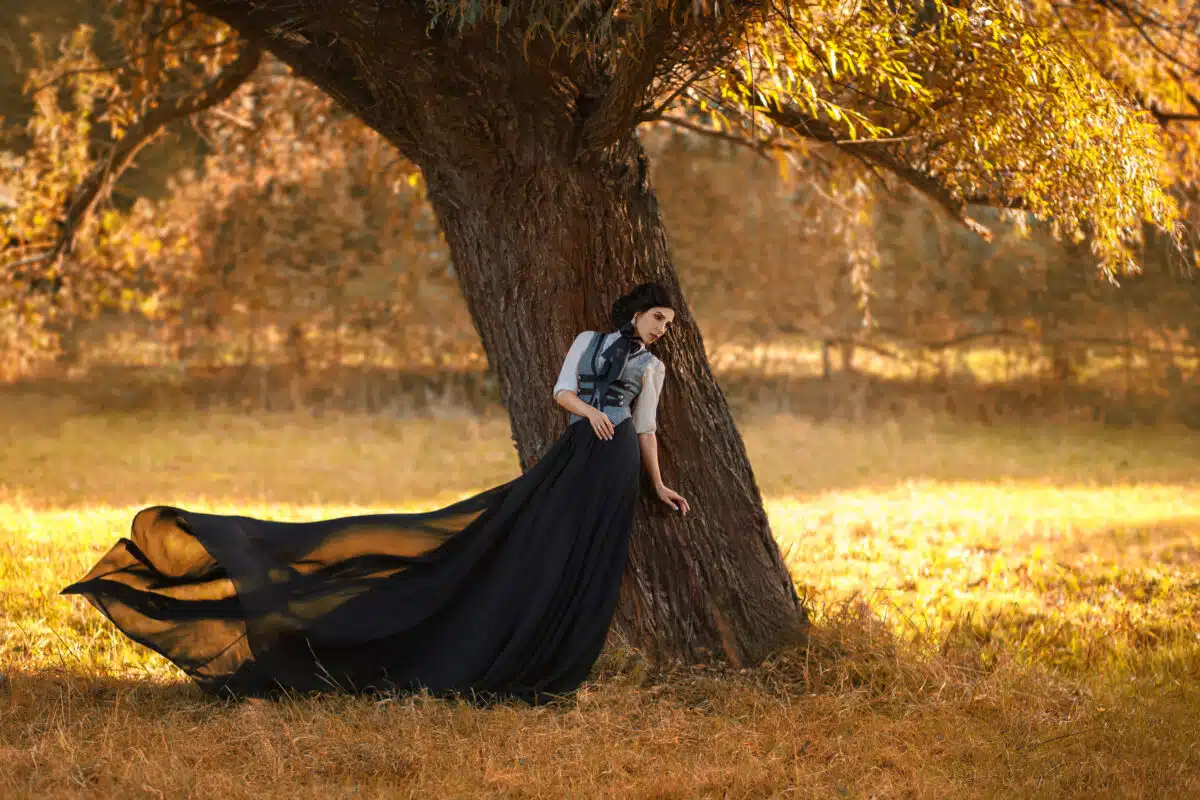
“Chorus From ‘Medea'” by Lord De Tabley
Sweet are the ways of death to weary feet,
Calm are the shades of men.
The phantom fears no tyrant in his seat,
The slave is master then.
Love is abolish’d; well, that this is so;
We knew him best as Pain.
The gods are all cast out, and let them go,
Who ever found them gain?
Ready to hurt and slow to succour these;
So, while thou breathest, pray.
But in the sepulchre all flesh has
Their hand is put away.
“The Mystery of Pain” by Emily Dickinson
Pain has an element of blank ;
It cannot recollect
When it began, or if there were
A day when it was not.
It has no future but itself,
Its infinite realms contain
Its past, enlightened to perceive
New periods of pain.
“Despairing Cries” by Walt Whitman
Despairing cries float ceaselessly toward me, day and night,
The sad voice of Death–the call of my nearest lover, putting forth, alarmed, uncertain,
This sea I am quickly to sail, come tell me,
Come tell me where I am speeding–tell me my destination.
I understand your anguish, but I cannot help you,
I approach, hear, behold–the sad mouth, the look out of the eyes, your mute inquiry,
Whither I go from the bed I now recline on, come tell me;
Old age, alarmed, uncertain–A young woman’s voice appealing to me, for comfort,
A young man’s voice, Shall I not escape?
Dark Poems About Love

“Death-in-Love” by Dante Gabriel Rossetti
Τhere came an image in Life’s retinue
That had Love’s wings and bore his gonfalon:
Fair was the web, and nobly wrought thereon,
O soul-sequestered face, thy form and hue!
Bewildering sounds, such as Spring wakens to,
Shook in its folds; and through my heart its
Sped trackless as the immemorable hour
When birth’s dark portal groaned and all was new.
But a veiled woman followed, and she caught
The banner round its staff, to furl and cling, —
Then plucked a feather from the bearer’s wing,
And held it to his lips that stirred it not,
And said to me, ‘Behold, there is no breath:
I and this Love are one, and I am Death.’
“Severed Selves” by Dante Gabriel Rossetti
Two separate divided silences,
Which, brought together, would find loving voice;
Two glances which together would rejoice
In love, now lost like stars beyond dark trees;
Two hands apart whose touch alone gives ease;
Two bosoms which, heart-shrined with mutual flame,
Would, meeting in one clasp, be made the same;
Two souls, the shores wave- mocked of sundering seas:—
Such are we now. Ah! may our hope forecast
Indeed one hour again, when on this stream
Of darkened love once more the light shall gleam? —
An hour how slow to come, how quickly past,
Which blooms and fades, and only leaves at last,
Faint as shed flowers, the attenuated dream.
“Not Thou but I” by Philip Bourke Marston
It must have been for one of us, my own,
To drink this cup and eat this bitter bread.
Had not my tears upon thy face been shed,
Thy tears had dropped on mine; if I alone
Did not walk now, thy spirit would have known
My loneliness ; and did my feet not tread
This weary path and steep, thy feet had bled
For mine, and thy mouth had for mine made moan:
And so it comforts me, yea, not in vain,
To think of thine eternity of sleep;
To know thine eyes are tearless though mine weep :
And when this cup’s last bitterness I drain,
One thought shall still its primal sweetness keep, —
Thou hadst the peace and I the undying pain.

“Love and Death” by Margaret Deland
Alas! that men must see
Love, before Death!
Else they content might be
With their short breath;
Aye, glad, when the pale sun
Showed restless day was done,
And endless Rest begun.
Glad, when with strong, cool hand
Death clasped their own ,
And with a strange command
Hushed every moan;
Glad to have finished pain,
And labor wrought in vain ,
Blurred by Sin’s deepening stain .
But Love’s insistent voice
Bids self to flee
“Live that I may rejoice,
Live on, for me!”
So, for Love’s cruel mind,
Men fear this Rest to find,
Nor know great Death is kind!
“Forever” by John Boyle O’Reilly
Those we love truly never die,
Though year by year the sad memorial wreath ,
A ring and flowers, types of life and death ,
Are laid upon their graves.
For death the pure life saves,
And life all pure is love; and love can reach
From heaven to earth, and nobler lessons teach
Than those by mortals read.
Well blest is he who has a dear one dead:
A friend he has whose face will never change—
A dear communion that will not grow strange;
The anchor of aa love is death.
The blessed sweetness of a loving breath
Will reach our cheek all fresh through weary years.
For her who died long since, ah ! waste not tears,
She’s thine unto the end.
Thank God for one dear friend,
With face still radiant with the light of truth,
Whose love comes laden with the scent of youth,
Through twenty years of death.
“Early Death” by Hartley Coleridge
She passed away like morning dew
Before the sun was high;
So brief her time, she scarcely knew
The meaning of a sigh.
As round the rose its soft perfume,
Sweet love around her floated ;
Admired she grew—while mortal doom
Crept on, unfeared, unnoted.
Love was her guardian Angel here,
But Love to Death resigned her;
Though Love was kind, why should we fear
But holy Death is kinder?

“Constancy” by Minor Watson
“Dear as remembered kisses after death ”
We read and pause, toying the pliant page
With absent fingers while we question slow,
By whom remembered? Not by those that live,
And love again, and wed, and know fresh joys,
Forgetting the pale past. Ah, no! for them,
The sudden stirring of such long-whelmed thought
Means shock and pain, and swift reburial.
But it may be, that with the dreaming dead,
Who sank away quick piercèd by despair,
It may be that their stillness is aglow
Through soft recalling of each loved caress ;
Perchance it is of them the poet saith
“Dear as remembered kisses after death.”
“Love, Time And Death” by Frederick Locker-Lampson
Ah me, dread friends of mine, —Love, Time, and Death:
Sweet Love, who came to me on shining wing,
And gave her to my arms,—her lips, her breath,
And all her golden ringlets clustering:
And Time, who gathers in the flying years,
He gave me all, but where is all he gave?
He took my love and left me barren tears;
Weary and lone I follow to the grave.
There Death will end this vision half-divine.
Wan Death, who waits in shadow evermore,
And silent , ere he give the sudden sign;
Oh, gently lead me through thy narrow door,
Thou gentle Death, thou trustieth friend of mine—
Ah me, for Love—will Death my Love restore?
“The Dark Night Of The Mind” by John Frederick Freeman
I could not love if my thought loved not too,
Nor could my body touch the body of you,
Unless first in the dark night of the mind
Love had fulfilled what Love had well designed.
Was it in thought or flesh we walked, when low
The sun dropped, and the white scar on the hill
Sank into the dark trees?
Could we indeed so quietly go
Body by body into that heavenly glow?
The elms that rose so vast above the mill
Near leafless were and still;
But from the branches with such loud unease
Black flocking starlings mixed their warring cries
That seemed the greater noise of the creaking mill;
And every branch and extreme twig was black
With birds that whistled and heard and whistled back,
Filling with noise as late with wings the skies.
Was it their noise we heard,
Or clamour of other thoughts in our quiet mind that stirred?
Then through the climbing hazel hedge new thinned
By the early and rapacious wind,
We saw the silver birches gleam with light
Of frozen masts in seas all wild and green.
O, were they truly trees, or some unseen
Thought taking on an image dark and bright?
And did those bodies see them, or the mind?
And did those bodies face once more the hill
To bathe in night, or on a darker road
Our spirits unseeing unwearying rise and rise
Where these feet never trod?
From that familiar outer darkness I
Would rise to the inner, deeper, darker sky
And find you in my spirit–or find you not,
O, never, never, if not in my thought.
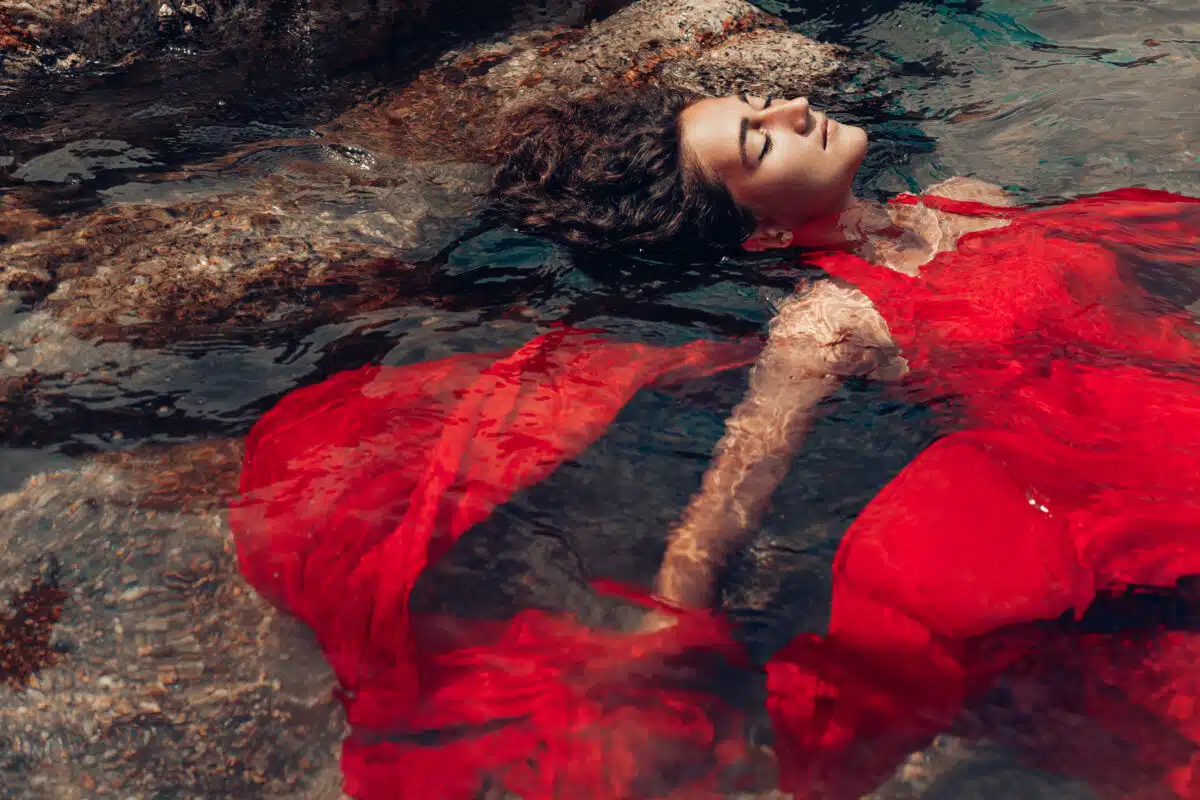
“Dead Love” by Algernon Charles Swinburne
Dead love, by treason slain, lies stark,
White as a dead stark-stricken dove:
None that pass by him pause to mark
Dead love.
His heart, that strained and yearned and strove
As toward the sundawn strives the lark,
Is cold as all the old joy thereof.
Dead men, re-arisen from dust, may hark
When rings the trumpet blown above:
It will not raise from out the dark
Dead love.
“Ashes of Life” by Edna St. Vincent Millay
Love has gone and left me and the days are all alike;
Eat I must, and sleep I will,—and would that
night were here!
But ah!—to lie awake and hear the slow hours
strike!
Would that it were day again !—with twilight
near!
Love has gone and left me and I don’t know what
to do;
This or that or what you will is all the same
to me;
But all the things that I begin I leave before I’m
through,—
There’s little use in anything as far as I can see.
Love has gone and left me, —and the neighbors
knock and borrow,
And life goes on forever like the gnawing of a
mouse,—
And to-morrow and to-morrow and to-morrow and
to-morrow
There’s this little street and this little house.
“Sonnet” by John Kennedy
The bliss that poets’ feel, when all inspired
They tune the lyre to love’s bewitching theme;
The joy that warriors know when glory -fired,
They snatch the laurels of immortal fame,
May give some faint resemblance of the joy
That thrilled my soul that memorable day,
When something more than rapture filled my eyes
And something more than glory sent a ray,
Dispelling the long- gathered midnight gloom,
Dark as the bosom of the vaulted tomb;
When ‘ fore my eyes stood heaven-bom Liberty,
In all the glow of Eden’s virgin bloom,
And, with an angel’s voice, thus said to me,
“Go ! breathe thy native air, this mandate makes
thee free.”
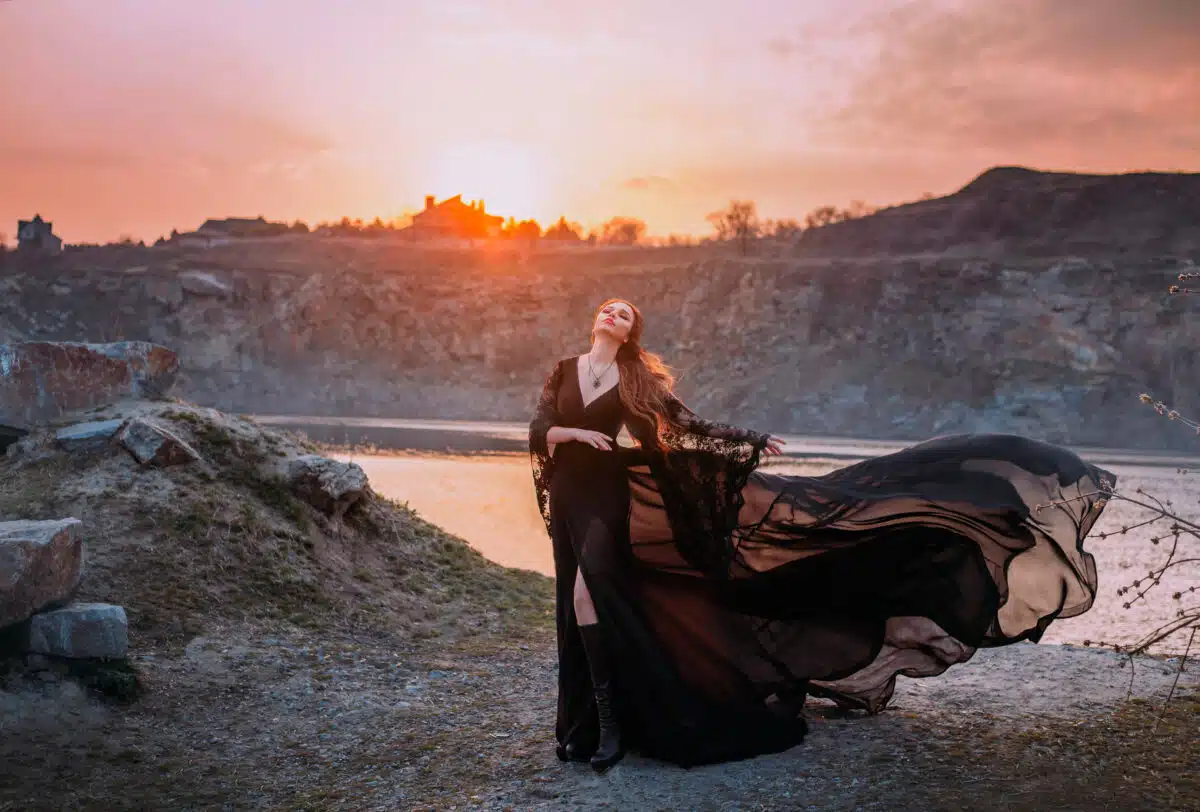
“To J. S.” by Alfred Lord Tennyson
The wind, that beats the mountain, blows
More softly round the open wold,
And gently comes the world to those
That are cast in gentle mould.
And me this knowledge bolder made,
Or else I had not dared to flow
In these words toward you, and invade
Even with a verse your holy woe.
‘Tis strange that those we lean on most,
Those in whose laps our limbs are nursed,
Fall into shadow, soonest lost:
Those we love first are taken first.
God gives us love. Something to love
He lends us; but, when love is grown
To ripeness, that on which it throve
Falls off, and love is left alone.
This is the curse of time. Alas!
In grief I am not all unlearn’d;
Once thro’ mine own doors Death did pass;
One went, who never hath return’d.
He will not smile – not speak to me
Once more. Two years his chair is seen
Empty before us. That was he
Without whose life I had not been.
Your loss is rarer; for this star
Rose with you thro’ a little arc
OfHeaven, nor having wander’d far
Shot on the sudden into dark.
I knew your brother: his mute dust
I honour and his living worth:
A man more pure and bold and just
Was never born into the earth.
I have not look’d upon you nigh,
Since that dear soul hath fall’n asleep.
Great Nature is more wise than I:
I will not tell you not to weep.
And tho’ mine own eyes fill with dew,
Drawn from the spirit thro’ the brain,
I will not even preach to you,
“Weep, weeping dulls the inward pain.”
Let Grief be her own mistress still.
She loveth her own anguish deep
More than much pleasure. Let her will
Be done— to weep or not to weep.
I will not say, “God’s ordinance
Of Death is blown in every wind;”
For that is not a common chance
That takes away a noble mind.
His memory long will live alone
In all our hearts, as mournful light
That broods above the fallen sun,
And dwells in Heaven half the night.
Vain solace ! Memory standing near
Cast down her eyes, and in her throat
Her voice seem’d distant, and a tear
Dropt on the letters as I wrote.
I wrote I know not what. In truth,
How should I soothe you anyway,
Who miss the brother of your youth?
Yet something I did wish to say:
For he too was a friend to me:
Both are my friends, and my true breast
Bleedeth for both; yet it may be
That only silence suiteth best.
Words weaker than your grief would make
Grief more. “Twere better I should cease
Although myself could almost take
The place of him that sleeps in peace.
Sleep sweetly, tender heart, in peace:
Sleep, holy spirit, blessed soul,
While the stars burn, the moons increase,
And the great ages onward roll.
Sleep till the end, true soul and sweet.
Nothing comes to thee new or strange.
Sleep full of rest from head to feet;
Lie still, dry dust, secure of change.
“Is the grave deep, Dear?” by Richard Realf
Is the grave deep, dear? Deeper still is Love.
They cannot hide thee from thy Father’s heart.
Thou liest below, and I stand here above,
Yet we are not apart….
Mine eyes ache for thee; God’s heaven is so high
We cannot see its singers; when thou dost
With thy lark’s voice make palpitant all the sky,
I moan and pain the most.
“Reunited” by Sir Gilbert Parker
When you and I have play’d the little hour,
Have seen the tall subaltern Life to Death
Yield up his sword; and, smiling, draw the breath,
The first long breath of freedom; when the flower
Of Recompense hath flutter’d to our feet,
As to an actor’s ; and, the curtain down,
We turn to face each other all alone—
Alone, we two, who never yet did meet,
Alone, and absolute, and free: O then,
O then, most dear, how shall be told the tale?
Clasp’d hands, press’d lips, and so clasp’d hands again;
No words. But as the proud wind fills the sail,
My love to yours shall reach, then one deep moan
Of joy, and then our infinite Alone.
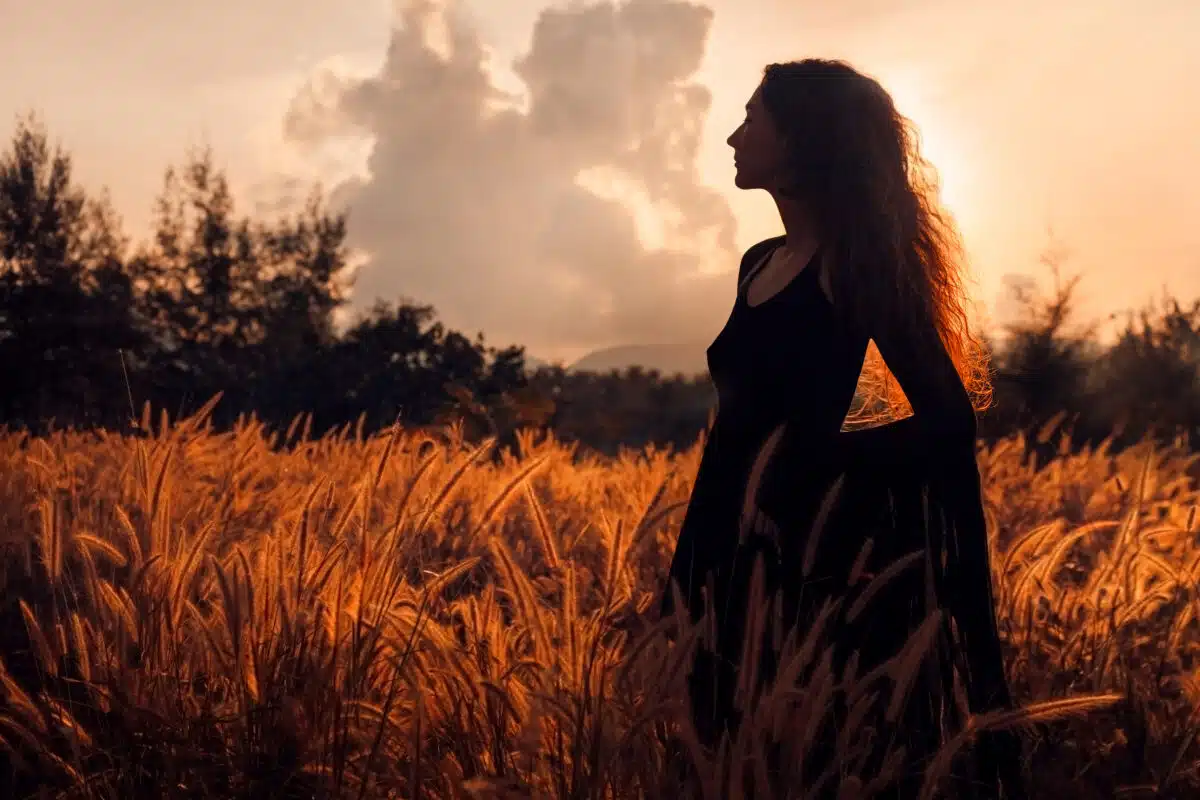
“When Death to either shall come” by Robert Bridges
When Death to either shall come,
I pray it be first to me, —
Be happy as ever at home,
If so, as I wish, it be.
Possess thy heart, my own;
And sing to the child on thy knee,
Or read to thyself alone
The songs that I made for thee.
“To Castara” by William Habington
Why should we fear to melt away in death?
May we but die together. When beneath,
In a cool vault we sleep, the world will prove
Religious, and call it the shrine of Love.
There, when o’ th’ wedding eve some beauteous maid,
Suspicious of the faith of man, hath paid
The tribute of her vows; o’ th’ sudden she
Two violets sprouting from the tomb will see:
And cry out, ‘ Ye sweet emblems of their zeal
Who live below, sprang ye up to reveal
The story of our future joys, how we,
The faithful patterns of their love shall be?
If not, hang down your heads opprest with dew,
And I will weep and wither hence with you.’
“Sweet Willie and Fair Annie” by Anonymous
It’s I will kiss your bonny cheek,
And I will kiss your chin;
And I will kiss your clay cald lip:
But I’ll never kiss woman again.
And that I was in love outdone,
Sall n’er be said o’ me;
For as ye’ve died for me, Annie,
Sae will I do for thee!
The day ye deal at Annie’s burial,
The bread out and the wine;
Before the morn at twall o’clock,
They’ll deal the same at mine.
The tane was buried in Mary’s kirk,
The tither in Mary’s quire;
And out o’ the tane there grew a birk,
And out o’ the tither a brier.
And ay they grew, and ay they drew,
Until they twa did meet;
And every one that past them by,
Said, ‘ Thae ‘ s twa lovers sweet.’

“The Silver Bridge” by Elizabeth Akers Allen
The sunset fades along the shore,
And faints behind yon rosy reach of sea.
Night falls again, but oh, no more,
No more, no more,
My love returns to me.
The lonely moon builds soft and slow
Her silver bridge across the main,
But him who sleeps the wave below
Love waits in vain,
Ah no, ah no,
He never comes again!
“The Night has a thousand Eyes” by Francis W. Bourdillon
The night has a thousand eyes,
And the day but one;
Yet the light of the bright world dies
With the dying sun.
The mind has a thousand eyes,
And the heart but one;
Yet the light of a whole life dies
When love is done.
“I found her not” by Thomas Moore
I found her not—the chamber seem’d
Like some divinely haunted place,
Where fairy forms had lately beam’d,
And left behind their odorous trace!
It felt, as if her lips had shed
A sigh around her, ere she fled ,
Which hung, as on a melting lute,
When all the silver chords are mute,
There lingers still a trembling breath
After the note’s luxurious death,
A shade of song, a spirit air
Of melodies which had been there….
Dark Poems About Depression
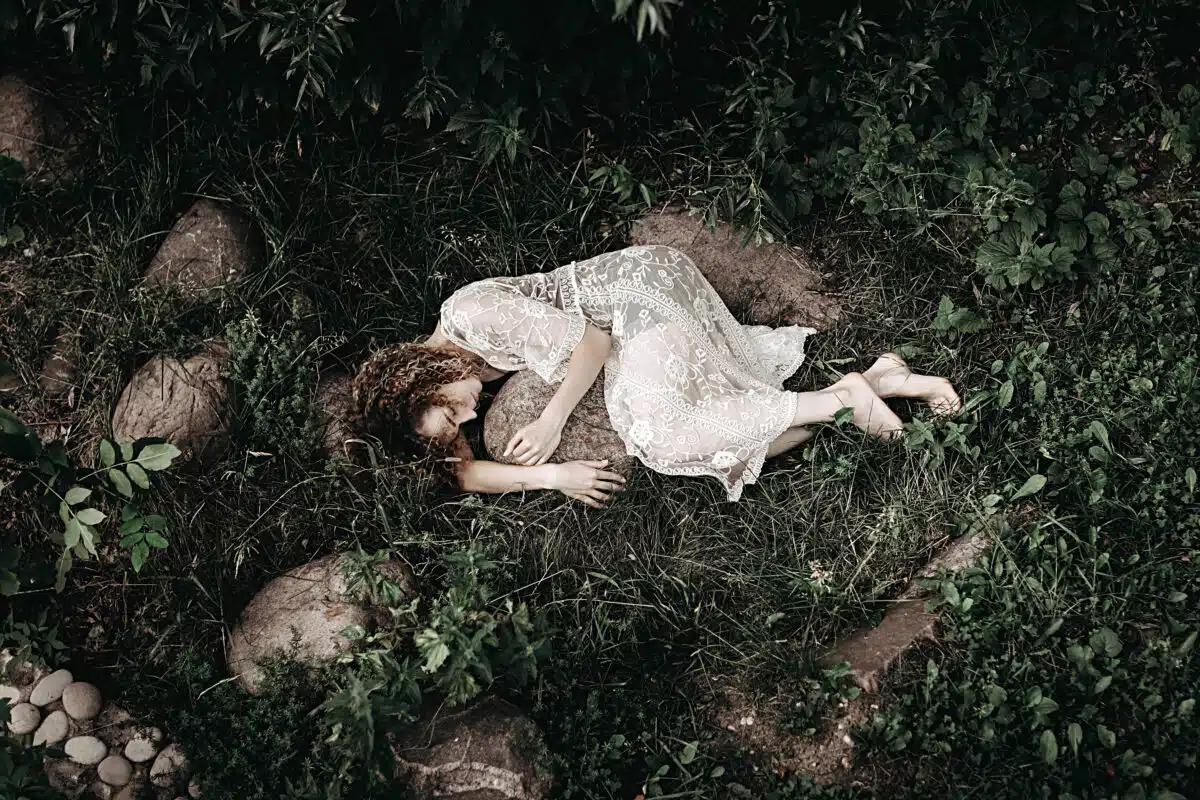
“Depression” by Morris Rosenfeld
All the striving, all the failing,
To the silent Nothing sailing.
Swiftly, swiftly passing by!
For the land of shadows leaving,
Where a wistful hand is weaving
Thy still woof, Eternity!
Gloomy thoughts in me awaken,
And with fear my breast is shaken,
Thinking: O thou black abyss;
All the toil and thrift of life,
All the struggle and the strife,
Shall it come at last to this?
With the grave shall be requited
Good and evil, and united
Ne’er to separate again?
What the light hath parted purely,
Shall the darkness join more surely?-
Was the vict’ry won in vain?
O mute and infinite extension,
O time beyond our comprehension,
Shall thought and deed ungarnered fall?
Ev’rything dost take and slay,
Ev’rything dost bear away,
Silent Nothing, silent All!…
“Melancholia” by Paul Laurence Dunbar
Silently without my window,
Tapping gently at the pane,
Falls the rain.
Through the trees sighs the breeze
Like a soul in pain.
Here alone I sit and weep;
Thought hath banished sleep.
Wearily I sit and listen
To the water’s ceaseless drip.
To my lip
Fate turns up the bitter cup,
Forcing me to sip;
‘Tis a bitter, bitter drink,
Thus I sit and think,—
Thinking things unknown and awful,
Thoughts on wild, uncanny themes,
Waking dreams.
Spectres dark, corpses stark,
Show the gaping seams
Whence the cold and cruel knife
Stole away their life.
Bloodshot eyes all strained and staring,
Gazing ghastly into mine;
Blood like wine
On the brow—clotted now—
Shows death’s dreadful sign.
Lonely vigil still I keep;
Would that I might sleep!
Still, oh, still, my brain is whirling!
Still runs on my stream of thought;
I am caught
In the net fate hath set.
Mind and soul are brought
To destruction’s very brink;
Yet I can but think!
Eyes that look into the future, —
Peeping forth from out my mind,
They will find
Some new weight, soon or late,
On my soul to bind,
Crushing all its courage out,—
Heavier than doubt.
Dawn, the Eastern monarch’s daughter,
Rising from her dewy bed,
Lays her head
‘Gainst the clouds’ sombre shrouds
Now half fringed with red.
O’er the land she ‘gins to peep;
Come, O gentle Sleep!
Hark! the morning cock is crowing;
Dreams, like ghosts, must hie away;
‘Tis the day.
Rosy morn now is born;
Dark thoughts may not stay.
Day my brain from foes will keep;
Now, my soul, I sleep.
“Quatrains: Melancholy” by Madison Julius Cawein
With shadowy immortelles of memory
About her brow, she sits with eyes that look
Upon the stream of Lethe wearily,
In hesitant hands Death’s partly-opened book.
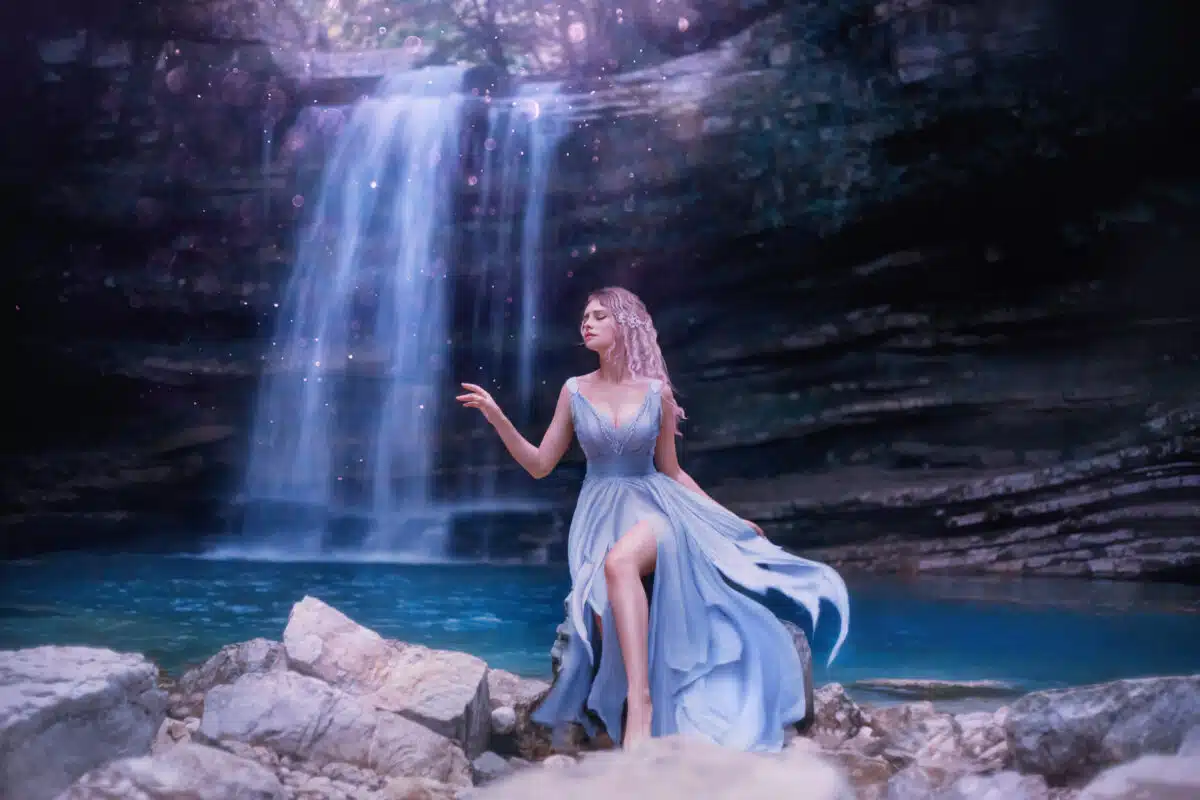
“A Cry” by Herbert Edwin Clarke
Lo, I am weary of all,
Of men and their love and their hate;
I have been long enough Life’s thrall
And the toy of a tyrant Fate.
I would have nothing but rest,
I would not struggle again;
Take me now to thy breast,
Earth, sweet mother of men.
Hide me and let me sleep;
Give me a lonely tomb
So close and so dark and so deep
I shall hear no trumpet of doom.
There let me lie forgot
When the dead at its blast are gone;
Give me to hear it not,
But only to slumber on.
This is the fate I crave,
For I look to the end and see
If there be not rest in the grave
There will never be rest for me.
“Tears” by Walt Whitman
Tears! tears! tears!
In the night, in solitude, tears;
On the white shore dripping, dripping, suck’d in by the sand;
Tears—not a star shining—all dark and desolate;
Moist tears from the eyes of a muffled head:
—O who is that ghost ?—that form in the dark, with
tears?
What shapeless lump is that, bent, crouch’d there on the
sand
Streaming tears—sobbing tears—throes, choked with
wild cries;
O storm, embodied, rising, careering, with swift steps
along the beach ;
O wild and dismal night storm, with wind ! O belching
and desperate!
O shade, so sedate and decorous by day, with calm
countenance and regulated pace;
But away, at night as you fly, none looking—O then the
unloosen’d ocean,
Of tears! tears! tears!
“The Desolate City” by Wilfrid Scawen Blunt
Dark to me is the earth. Dark to me are the heavens.
is I loved, the woman with eyes like stars?
Desolate are the streets. Desolate is the city.
Acity taken by storm, where none are left but the slain.
Sadly I rose at dawn, undid the latch of my shutters,
Thinking to let in light, but I only let in love.
Birds in the boughs were awake; I listen’d to their chaunting;
Each one sang to his love; only I was alone
This, I said in my heart, is the hour of life and of pleasure.
Now each creature on earth has his joy, and lives in the sun,
Each in another’s eyes finds light, the light of compassion,
This is the moment of pity, this is the moment of love.
Speak, O desolate city! Speak, O silence in sadness!
Where is she that I loved in my strength, that spoke to my soul?
Where are those passionate eyes that appeal’d to my eyes in passion?
Where is the mouth that kiss’d me, the breast I laid to my own ?
Speak, thou soul of my soul, for rage in my heart is kindled.
Tell me, where didst thou flee on the day of destruction and fear?
See, my arms still enfold thee, enfolding thus all heaven,
See, my desire is fulfill’d in thee, for it fills the earth.
Thus in my grief I lamented. Then turn’d I from the window,
Turn’d to the stair, and the open door, and the empty street,
Crying aloud in my grief, for there was none to chide me,
None to mock my weakness, none to behold my tears.
Groping I went, as blind. I sought her house, my beloved’s.
There I stopp’d at the silent door, and listen’d an tried the latch.
Love, I cried, dost thou slumber? This is no hour for slumber,
This is the hour of love, and love I bring in my hand.
I knew the house, with its windows barr’d, and its leafless fig-tree,
Climbing round by the doorstep, the only one in the street ;
I knew where my hope had climb’d to its goal and there encircled
All that those desolate walls once held, my beloved’s heart.
There in my grief she consoled me. She loved me when I loved not.
She put her hand in my hand, and set her lips to my lips.
She told me all her pain and show’d me all her trouble.
I , like a fool, scarce heard, hardly return’d her kiss.
Love, thy eyes were like torches . They changed as I beheld them.
Love, thy lips were like gems, the seal thou sett’st on my life.
Love, if I loved not then, behold this hour thy vengeance;
This is the fruit of thy love and thee, the unwise grown wise.
Weeping strangled my voice. I call’d out, but none answer’d;
Blindly the windows gazed back at me, dumbly the door;
She whom I love, who loved me, look’d not on my yearning,
Gave me no more her hands to kiss , show’d me no more her soul.
Therefore the earth is dark to me, the sunlight blackness ,
Therefore I go in tears and alone, by night and day;
Therefore I find no love in heaven, no light, no beauty.
A heaven taken by storm, where none are left but the slain!
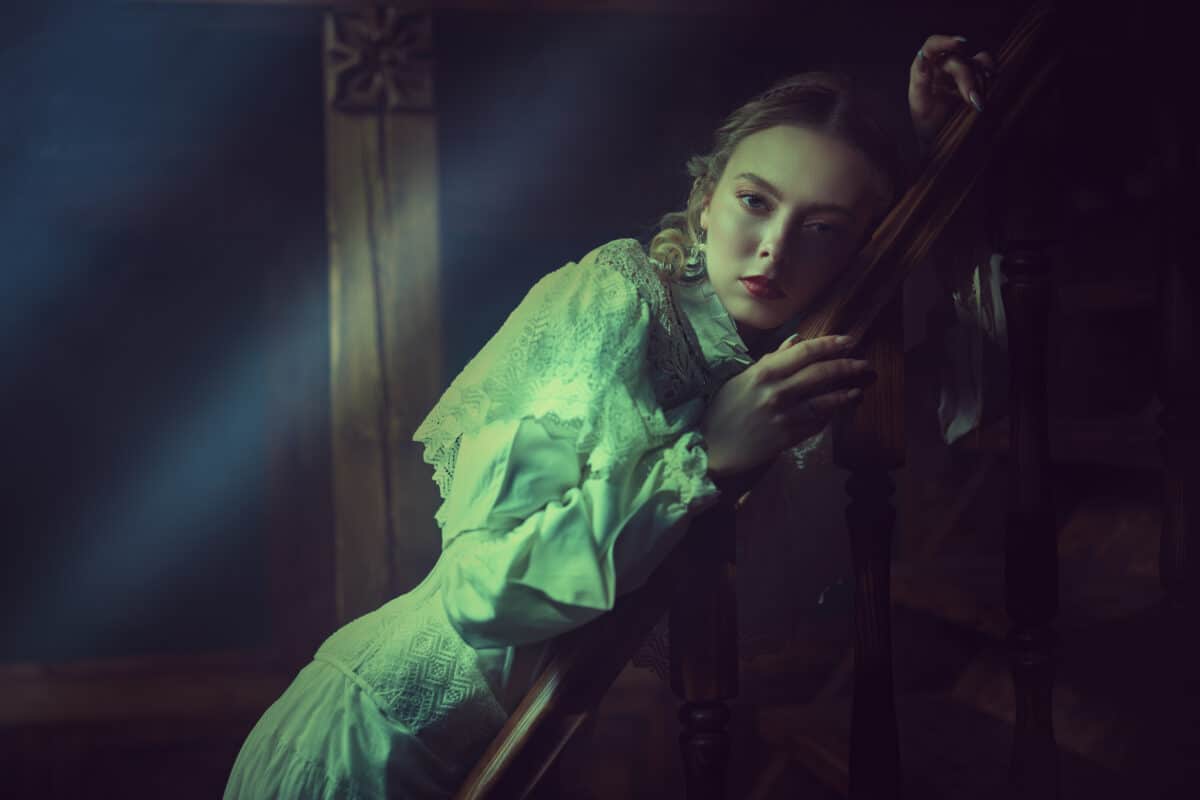
From “Amoris Victima” by Arthur Symons
i.
He who has entered by this sorrow’s door
Is neither dead nor living any more.
Nothing can touch me now, except the cold
Of whitening years that slowly make youth old;
Hunger, that makes the body faint; one thought
That ends all memory; for the future, nought.
My future ended yesterday; I have
Only a past, on this side of the grave.
For I have lost you, and you fill the whole
Of life now lost; and I have lost my soul,
Because I have no part or lot in things
That were to be immortal: grave-mould clings
About my very thoughts; and love’s dead too.
All that I know of love I learnt of you.
ii.
I cannot work: I dare not sit alone.
There’s not a corner here that has not known
Some moment of you, and your pictured eyes
Pursue me with relentless memories.
Here was the chair you sat in; here we lay
Until your face grew fainter with the day,
And, in a veil of kisses, swooning white,
Fell back into the mystery of night.
‘Twas here I kissed you first: ’twas there you said,
‘I love you ‘, and ‘Would God that I were dead!’
And now, when you are gone for evermore,
I pace between the window and the door,
And, in the feverish folly of despair,
Stand listening for your step upon the stair.
“Miserere” by Kate Seymour Maclean
Be pitiful, oh God! the night is long,
My soul is faint with watching for the light,
And still the gloom and doubt of seven-fold night
Hangs heavy on my spirit: Thou art strong.–
Pity me, oh my God!
I stretch my hands through darkness up to Thee,–
The stars are shrouded, and the night is dumb;
There is no earthly help,–to Thee I come
In all my helplessness and misery,–
Pity me, oh my God!
Be pitiful, oh God!–for I am weak,
And all my paths are rough, and hedged about,–
Hold Thou my hand dear Lord, and lead me out,
And bring me to the city which I seek,–
Pity me, oh my God!
By the temptation which Thou didst endure,
And by Thy fasting and Thy midnight prayer,
Jesu! let me not utterly despair;
Oh! hide me in the Rock from ill secure,–
Pity me, oh my God!
Mine eyes run down with tears that do not cease;
Oh! when beyond the river dark and cold,
Shall I the white walls of my home behold,–
The shining palaces–the streets of gold,–
And enter through the gates the City of Peace,–
Pity me, oh my God!
“Despair” by Madison Julius Cawein
Shut in with phantoms of life’s hollow hopes,
And shadows of old sins satiety slew,
And the young ghosts of the dead dreams love knew,
Out of the day into the night she gropes.
Behind her, high the silvered summit slopes
Of strength and faith, she will not turn to view;
But towards the cave of weakness, harsh of hue,
She goes, where all the dropsied horror ropes.
There is a voice of waters in her ears,
And on her brow a wind that never dies:
One is the anguish of desired tears;
One is the sorrow of unuttered sighs;
And, burdened with the immemorial years,
Downward she goes with never lifted eyes.

“Quatrains: Sorrow” by Madison Julius Cawein
Death takes her hand and leads her through the waste
Of her own soul, wherein she hears the voice
Of lost Love’s tears, and, famishing, can but taste
The dead-sea fruit of Life’s remembered joys.
“The Precept of Silence” by Lionel Johnson
I know you: solitary griefs,
Desolate passions, aching hours!
I know you: tremulous beliefs,
Agonized hopes, and ashen flowers!
The winds are sometimes sad to me;
The starry spaces full of fear:
Mine is the sorrow on the sea,
And mine the sigh of places drear.
Some players upon plaintive strings
Publish their wistfulness abroad:
I have not spoken of these things,
Save to one man, and unto God.
“Sit Down, Sad Soul” by Bryan Waller Procter
Sit down, sad soul, and count
The moments flying;
Come—tell the sweet amount
That’s lost by sighing!
How many smiles ?—a score?
Then laugh and count no more ;
For day is dying!
Lie down , sad soul, and sleep,
And no more measure
The flight of time, nor weep
The loss of leisure;
But here, by this lone stream,
Lie down with us, and dream
Of starry treasure!
We dream; do thou the same;
We love—for ever;
We laugh, yet few we shame—
The gentle, never.
Stay, then, till sorrow dies;
Then—hope and happy skies
Are thine for ever!
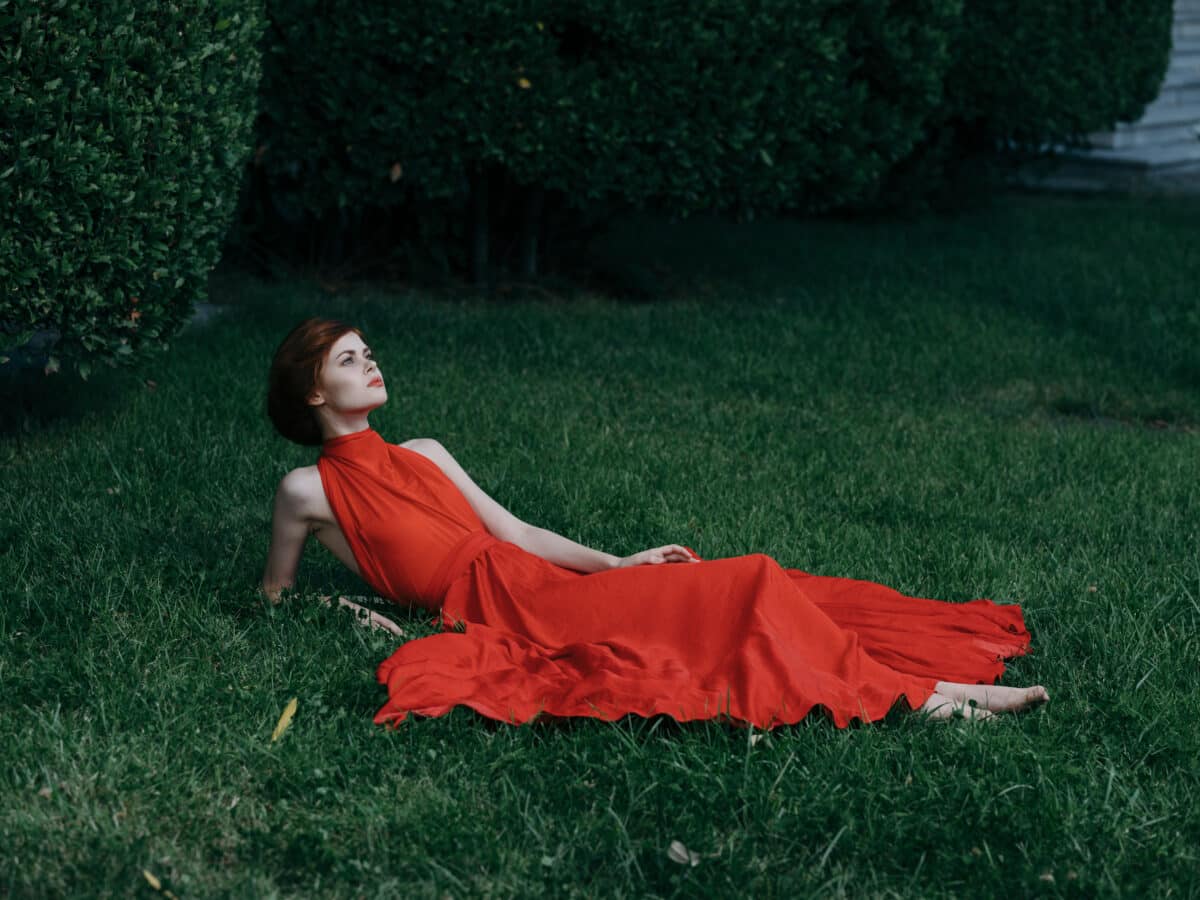
“The Rubicon” by William Winter
One other bitter drop to drink ,
And then —no more!
One little pause upon the brink,
And then go o’er!
One sigh—and then the lib’rant morn
Of perfect day,
When my free spirit, newly born,
Will soar away!
One pang—and I shall rend the thrall
Where grief abides,
And generous Death will show me all
That now he hides;
And, lucid in that second birth,
I shall discern
What all the sages of the earth
Have died to learn.
One motion— and the stream is crossed,
So dark, so deep!
And I shall triumph, or be lost
In endless sleep.
Then, onward! Whatsoe’er my fate,
I shall not care!
Nor Sin nor Sorrow, Love nor Hate
Can touch me there.
“Forsaken and Forlorn” by D. H. Lawrence
The house is silent, it is late at night, I am alone.
From the balcony
I can hear the Isar moan,
Can see the white
Rift of the river eerily, between the pines, under
a sky of stone.
Some fireflies drift through the middle air
Tinily.
I wonder where
Ends this darkness that annihilates me.
Dark Poems About Insanity

“Madness” by Byron
A change came o’er the spirit of my dream.
The lady of his love;—Oh! she was changed,
As by the sickness of the soul; her mind
Had wandered from its dwelling, and her eyes
They had not their own lustre, but the look
Which is not of the earth; she was become
The queen of a fantastic realm; her thoughts
Were combinations of disjointed things;
And forms impalpable and unperceived
To others’ sight familiar were to hers.
And this the world calls phrensy ; but the wise
Have a far deeper madness; and the glance
Of melancholy is a fearful gift;
What is it but the telescope of truth?
Which strips the distance of its phantasies,
Making the cold reality too real.
“Humiliation” by D. H. Lawrence
I have been so innerly proud, and so long alone,
Do not leave me, or I shall break .
Do not leave me.
What should I do if you were gone again
So soon?
What should I look for?
Where should I go?
What should I be, I myself,
“ I ” ?
What would it mean, this
I?
Do not leave me.
What should I think of death?
If I died , it would not be you:
It would be simply the same Lack of you.
The same want, life or death ,
Unfulfilment,
The same insanity of space
You not there for me.
Think, I daren’t die
For fear of the lack in death.
And I daren’t live.
Unless there were a morphine or a drug.
I would bear the pain.
But always, strong, unremitting
It would make me not me.
The thing with my body that would go on
living
Would not be me.
Neither life nor death could help.
Think, I couldn’t look towards death
Nor towards the future :
Only not look.
Only myself
Stand still and bind and blind myself.
God, that I have no choice!
That my own fulfilment is up against me
Timelessly!
The burden of self-accomplishment!
The charge of fulfilment!
And God, that she is necessary!
Necessary, and I have no choice!
Do not leave me.
“In The Dark” by D. H. Lawrence
A blotch of pallor stirs beneath the high
Square picture-dusk, the window of dark sky.
A sound subdued in the darkness: tears!
As if a bird in difficulty up the valley steers.
“Why have you gone to the window ? Why don’t you sleep?
How you have wakened me !—But why, why do you weep?
“I am afraid of you, I am afraid , afraid!
There is something in you destroys me—!”
“You have dreamed and are not awake, come here
to me.”
“No, I have wakened. It is you, you are cruel to
me! ”
My dear! ”—” Yes, yes, you are cruel to me. You
cast
A shadow over my breasts that will kill me at last.”
“Come ! “—“No, I’m a thing of life. I give
You armfuls of sunshine, and you won’t let me live.”
“Nay, I’m too sleepy ! ” — ” Ah, you are horrible;
You stand before me like ghosts, like a darkness upright.”
“I ! ”— “ How can you treat me so , and love me?
My feet have no hold , you take the sky from above me.”
My dear, the night is soft and eternal, no doubt
You love it! ”—“ It is dark, it kills me, I am put out.”
“My dear, when you cross the street in the sun shine, surely
Your own small night goes with you. Why treat it so poorly ?
“No, no, I dance in the sun, I’m a thing of life—”
“Even then it is dark behind you. Turn round,
my wife.”
No, how cruel you are, you people the sunshine
With shadows! “—“ With yours I people the
sunshine, yours and mine
“In the darkness we all are gone, we are gone
with the trees
And the restless river ;-we are lost and gone
with all these.”
“But I am myself, I have nothing to do with these .”
“Come back to bed, let us sleep on our mysteries.
“Come to me here, and lay your body by mine,
And I will be all the shadow , you the shine.
“Come, you are cold , the night has frightened you.
Hark at the river ! It pants as it hurries through
“The pine- woods. How I love them so, in their mystery of not-to-be.”
” —But let me be myself, not a river or a tree.”
“Kiss me ! How cold you are !—Your little breasts
Are bubbles of ice. Kiss me -You ! know how
it rests
“One to be quenched, to be given up, to be gone in the dark;
To be blown out, to let night dowse the spark.
“But never mind,, my love. Nothing matters,
save sleep;
Save you, and me, and sleep; all the rest will keep.”
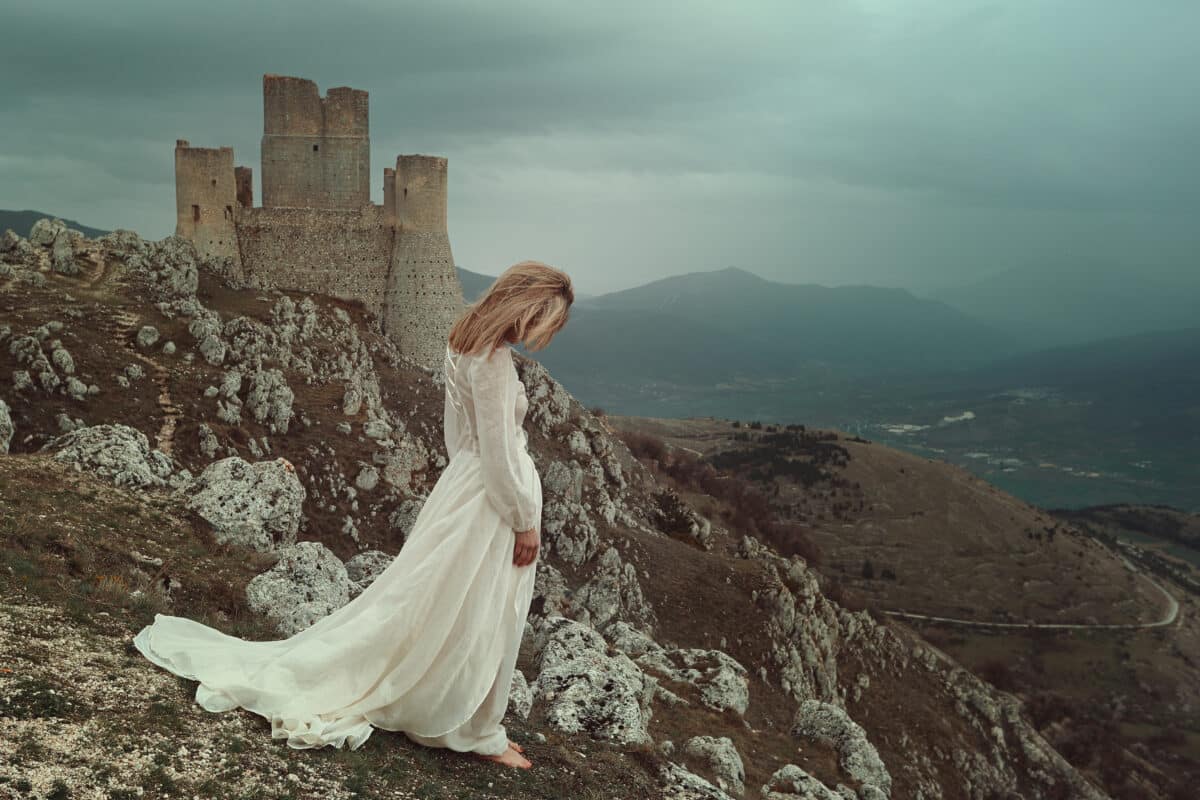
“Mental Cases” by Wilfred Owen
Who are these? Why sit they here in twilight?
Wherefore rock they, purgatorial shadows,
Drooping tongues from jaws that slob their relish,
Baring teeth that leer like skulls’ tongues wicked?
Stroke on stroke of pain,—but what slow panic,
Gouged these chasms round their fretted sockets?
Ever from their hair and through their hand palms
Misery swelters. Surely we have perished
Sleeping, and walk hell; but who these hellish?
—These are men whose minds the Dead have ravished.
Memory fingers in their hair of murders,
Multitudinous murders they once witnessed.
Wading sloughs of flesh these helpless wander,
Treading blood from lungs that had loved laughter.
Always they must see these things and hear them,
Batter of guns and shatter of flying muscles,
Carnage incomparable and human squander
Rucked too thick for these men’s extrication.
Therefore still their eyeballs shrink tormented
Back into their brains, because on their sense
Sunlight seems a bloodsmear; night comes blood-black;
Dawn breaks open like a wound that bleeds afresh
—Thus their heads wear this hilarious, hideous,
Awful falseness of set-smiling corpses.
—Thus their hands are plucking at each other;
Picking at the rope-knouts of their scourging;
Snatching after us who smote them, brother,
Pawing us who dealt them war and madness.
